- Skip to content
- Skip to footer
- Accessibility options

- Business and employers
- Alumni and supporters
- For students

- Postgraduate research degrees
- Our postgraduate research disciplines
- Digital media and culture PhD

Digital media PhD | Digital cultures PhD
As a PhD research student in the areas of digital media, digital culture and digital innovation, your research will help us understand how society, ourselves and our communities are transforming through digital media, digital arts, digital business and the many facets of communication technologies.
Digital culture encompasses a range of themes and methods if inquiry, such as the ways in which our relationships change with social media, how artificial intelligence and the Internet of Things are changing the ways we move in the world, or how virtual reality is changing the creative sector. Exploring these themes and more, Digital Culture is a key area of research expertise at the University of Brighton.
Expert academics work in both the School of Art and Media and the School of Humanities and Social Science, either of which will provide a supportive academic home for students in digital media. We welcome applications for theory or practice focused research. Our expertise relates to industry developments and practices, as well as community activism in local and global contexts, and changes in the nature of audiences and their engagements.
Academics in this area are also the lead academic delivery partners that create links between the university and businesses to generate research impact.
Apply to 'Arts and Media' in the portal
Our registration system collects several programmes under the strand 'Arts and Media.' Please choose this option in the portal.
Apply with us for funding through the AHRC Techne Doctoral Training Partnership
Key information
PhD students across digital culture, digital media and digital innovation benefit from a supervisory team with two or three members of staff, allowing them to draw directly on staff’s engagement in a wide range of research projects. Depending on your research area, you may also have an additional external supervisor from another School, another research institution, or from the industry.
Our postgraduate research students have the opportunity to be engaged in a range of activities, including involvements in research centres, organising research events, and contributing to aspects of media research culture. As a PhD student you will also receive training by the Brighton Doctoral College and have the opportunity to join an extensive network of PhD students across the University. You will be part of a vibrant research community at the heart of Britain’s digital and creative industry.
All students are provided with access to desk space and computers. You will additionally benefit from access to a range of electronic resources via the university’s online library, as well as to the physical book and journal collections housed within the Aldrich Library and other campus libraries.
Recent and current PhD students have been successful in obtaining studentships covering both fees and living costs through the University of Brighton’s involvement in the AHRC TECHNE , the ESRC SCDTP and the EPSRC SEAHA . Please get in touch with your chosen supervisor to discuss your research project idea and possible ways to fund your Doctoral research.
Academic environment
The City of Brighton and Hove gives our PhD students access to one of the UK’s most lively media economies. We foster research that takes advantage of these relationships with a history of community-engagement and industry-based research projects.
You will be based with the academics of specialist Centres of Research and Enterprise Excellence and/or Research and Enterprise Groups. These give both supervisory opportunities and the chance to network with both theorists and practitioners.
Our researchers explore how digital media impacts upon everyday life, such as its contribution to future cities through intelligent/sustainable services such as transport and social care, and ubiquitous surveillance. We also pay attention to emerging technologies and social change, exploring social media and activism, science and technology, digital health, digital citizenship, policy, governance and education, as well as the arts and the creative industries. Our focus is on matters of exclusion, inclusion, identity formation, specifically through the analytical lenses of ageing, class, disability, gender and sexuality.
The role of digital culture and digital media in political, social and environmental activism, and in the creation of online/offline communities are also a focus of our research. The nature of audiences and their engagements with digital media are explored through podcasting, news, and feminist- and inclusion-oriented approaches to gaming cultures. Researchers at the University of Brighton use a range of methodologies and theoretical approaches in their research but we pay close attention to qualitative research, ethnography and everyday life, audience research, informed by feminist, LGBT and queer theory, and contemporary theoretical debates in digital media and data technologies.
Creative media practice is another focus of research in the School of Art and Media. This includes both theoretical and practice-based research around Digital Transformation Design, Digital and Interactive Arts/Music/Sound, Photography, Immersive Media (AR/VR), Creative Industries, and many more. As a PhD student, you can draw on staff expertise in both critical creative media practice and theoretical perspectives.
PhD students could pursue research in a wide range of media and communication topics. The following areas of digital and media culture research indicate some of our areas of research expertise.
- Blockchain, cloud computing, the sharing economy
- Cultural informatics
- Data technologies and digital culture
- Digital humanities
- Digital media and activism
- Game studies
- Immersive media/AR/VR
- Innovation and media/Creative industries
- Interactive and digital arts/music/sound
- Screen cultures
- Selfies and identity
- Smart mobility and intelligent Transport
- Social media
- Sound and music practices
For more detail about these research areas please check the following links and also the supervisors' profiles below:
- Creative Sound and Music Research Excellence Group
- Screen Studies Research Excellence Group
Some of our supervisors
Dr douglas mcnaughton.
Political economy of television production. Aesthetics and narrative in television. Historical development of British television. Representations of space, place and identities in British screen cultures. Science fiction, fantasy and horror, in particular, British folk horror. Telefantasy, world cinema, screen technologies, the sociology of space. Screen acting and performance.
Dr Maria Sourbati
I am interested in supervising doctoral students on a range of topics and themes including smart technologies, age relations, ICT access and mobility, digital inclusion, digital literacies, digital inequality and transport-related exclusion.
My past PhD supervision includes projects in media diversity, media regulation, e-government.
Current PhD supervision
Sijuade Olanihun Yusuf (International PhD Studentship) - Social media and negotiation of identity by African Women in Sub-Saharan African countries.
Vicki Painting - How might the ‘orphaned body’ of my mother living through the fourth age be represented other than within the prevailing construct of abject, unproductive and ultimately unsuccessful ageing?
Dr Marcus Winter
I am interested in supervising postgraduate research students in ubiquitous computing, human-computer interaction and applied machine learning in the contexts of education, cultural heritage and public engagement.
For further supervisory staff including cross-disciplinary options, please visit research staff on our research website.
Making an application
You will apply to the University of Brighton through our online application portal. When you do, you will require a research proposal, references, a personal statement and a record of your education.
You will be asked whether you have discussed your research proposal and your suitability for doctoral study with a member of the University of Brighton staff. We recommend that all applications are made with the collaboration of at least one potential supervisor. Approaches to potential supervisors can be made directly through the details available online. If you are unsure, please do contact the Doctoral College for advice.
Please visit our How to apply for a PhD page for detailed information.
Sign in to our online application portal to begin.
Fees and funding
Funding
Undertaking research study will require university fees as well as support for your research activities and plans for subsistence during full or part-time study.
Funding sources include self-funding, funding by an employer or industrial partners; there are competitive funding opportunities available in most disciplines through, for example, our own university studentships or national (UK) research councils. International students may have options from either their home-based research funding organisations or may be eligible for some UK funds.
Learn more about the funding opportunities available to you.
Tuition fees academic year 2024–25
Standard fees are listed below, but may vary depending on subject area. Some subject areas may charge bench fees/consumables; this will be decided as part of any offer made. Fees for UK and international/EU students on full-time and part-time courses are likely to incur a small inflation rise each year of a research programme.
|
| £4,786 | £2,393 |
|
| £15,900 | N/A |
|
| £14,500 | N/A |
| N/A | £2,393 |
Contact Brighton Doctoral College
To contact the Doctoral College at the University of Brighton we request an email in the first instance. Please visit our contact the Brighton Doctoral College page .
For supervisory contact, please see individual profile pages.
Search NYU Steinhardt
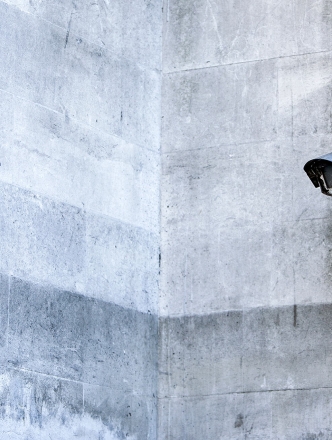
Doctor of Philosophy Media, Culture, and Communication
Grounded in an interdisciplinary approach to the study of media and culture, our doctorate draws from a rich array of disciplines and theoretical frameworks. Department expertise spans the globe: the Middle East, East Asia, the Global South, Africa, and Europe. Our faculty generate some of the most original scholarship in their respective fields, creating a stimulating environment in which to pursue graduate work.
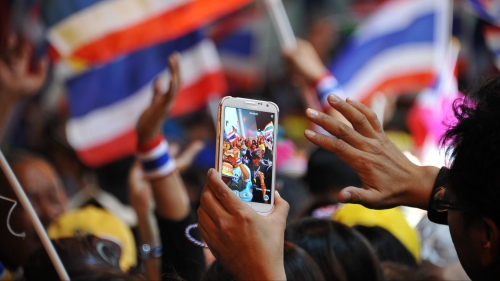
Degree Details
Official degree title.
PhD in Media, Culture, and Communication
Research Focus
Alumni placements, funding for full-time phd students.
Five research areas operate as guiding frameworks for intellectual inquiry across the department: Global Communication and Media, Technology and Society, Visual Culture and Sound Studies, Media Industries and Politics, Interaction and Experience.
Your work as a doctoral student will be shaped by our faculty's commitment to:
- Engaging with theoretical concepts from a range of disciplines—media and cultural studies, visual culture, history, science and technology studies, anthropology, sociology, disability studies, sound studies, political science.
- A multi-methodological approach to research—from semiotics, global ethnography, gender and queer theory, critical race theory, qualitative and quantitative discourse analysis, to political/cultural economy, among other critical frameworks.
- A global perspective—conceiving of the global mediascape as transnational and transcultural.
- Recognizing media and technology’s long history and antecedents.
Read some sample dissertation abstracts .
After graduating, alumni join academic departments of media and communication, with placement in the social sciences and interdisciplinary humanities becoming increasingly common. MCC PhDs who graduated in the past ten years are now tenure-track or tenured professors at the University of California, Berkeley; University of Washington, Seattle; Cornell University; Stanford University; UCLA; Rutgers; Fordham; University of Michigan; George Mason University; University of North Carolina; University of Arizona; College of Charleston; Memorial University of Newfoundland; University of San Francisco; Scripps; Pratt; University of Maryland; American University of Beirut; American University of Paris, Ryerson University; Trent University; St. Joseph’s College.
Over the past decade, our PhD graduates have received numerous prestigious postdocs, including a Mellon Postdoctoral Fellowship in the Humanities in the Department of Comparative Media Studies/Writing at MIT; Mellon Postdoctoral Fellowship at MIT's Center for Art, Science, and Technology; Postdoctoral Fellow, Berkman Klein Center, Harvard University; Postdoctoral Researcher, Max Planck Institute for the History of Science; Postdoctoral, Center for Information Technology Policy, Princeton University; Postdoctoral Fellowship at Rice University in Technology, Culture, and Society; Research Associate, Center for Digital Humanities, Princeton University; Postdoctoral Fellow, Media, Inequality & Change Center, University of Pennsylvania.
If you are accepted as a full-time NYU Steinhardt PhD student without an alternate funding source, you are eligible for our competitive funding package, which includes a scholarship and tuition remission. Learn more about our funding opportunities .
Graduate Leadership
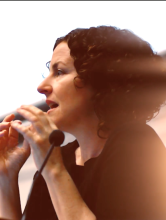
Associate Professor of Media, Culture, and Communication; PhD Director
If you have additional questions about our degree, please contact us at [email protected] .
Alumni Profiles
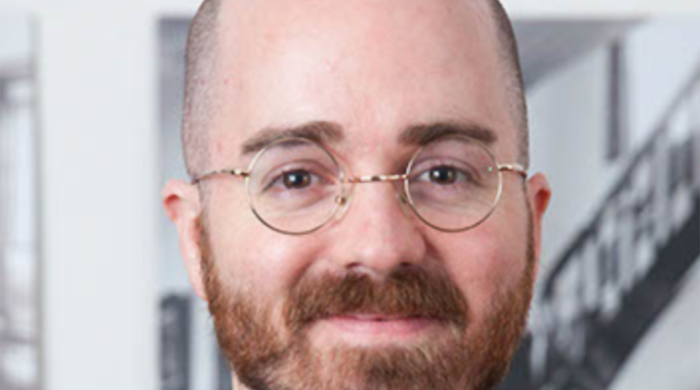
Jacob Gaboury (PhD 2014)
Jacob is an Assistant Professor in the Department of Film & Media at the University of California, Berkeley. His dissertation "Image Objects: An Archaeology of Computer Graphics, 1965-1979" investigated the early history of computer graphics and the role they play in the move toward new forms of simulation and object oriented design.
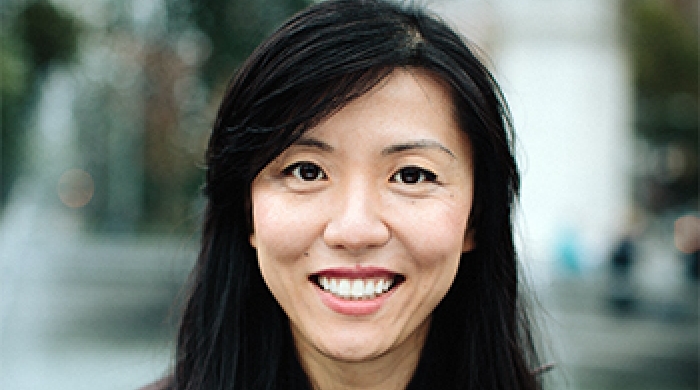
Xiaochang Li (PhD 2017)
Xiaochang is an Assistant Professor in the Department of Communication at Stanford University. Her teaching and research interests include the history of computing and information systems, AI and algorithmic culture, speech and language technology, and software/platform studies. Before joining Stanford, she was a postdoctoral fellow at the Max Planck Institute for the History of Science in Berlin.
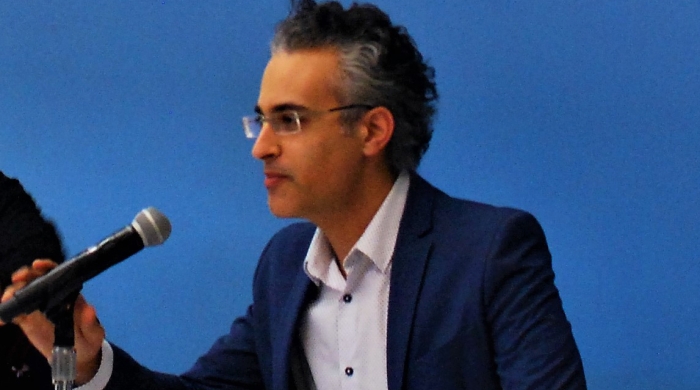
Hatim El-Hibri (PhD 2012)
Hatim is Assistant Professor of Film and Media Studies at George Mason University. His research examines media technologies and urban space in the Middle East. His dissertation traced the history of the visualization of Beirut, from the politics of aerial photography and mapping during the French Mandate, to the visual economy of postwar construction, to the materiality of Hizballah's live satellite television.
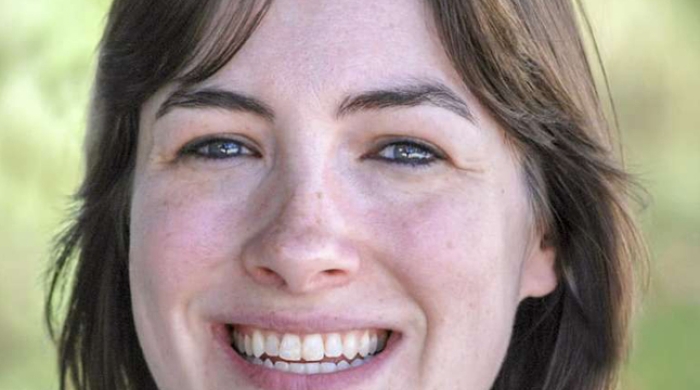
Liz Koslov (PhD 2017)
Liz is an Assistant Professor in the Department of Urban Planning and the Institute of the Environment and Sustainability at UCLA. Previously, she was a Mellon Postdoctoral Fellow at MIT. Her research examines the cultural, political, and sociological dimensions of climate change adaptation. Her first book project, Retreat: Moving to Higher Ground in a Climate-Changed City , is under advance contract with the University of Chicago Press.
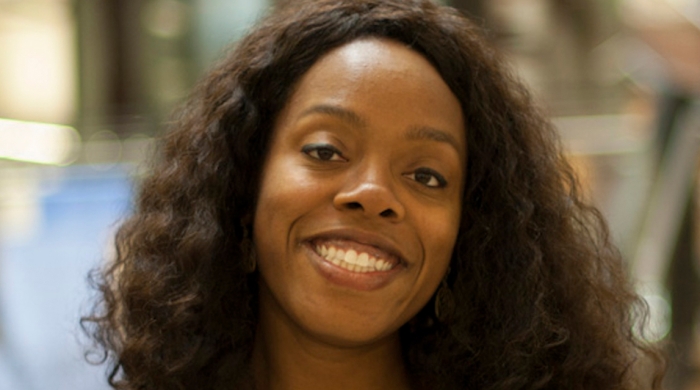
Devon Powers (PhD 2008)
Devon is an Associate Professor in the Departments of Advertising, Media & Communication at Temple University. Powers' research interests include popular music, 20th century history, and cultural intermediation – the people and processes that operate "in between" the production and consumption of culture. Powers completed a fellowship at the University of Leeds in 2014, and was recently elected Vice Chair of the Popular Communication Division of the International Communication Association.
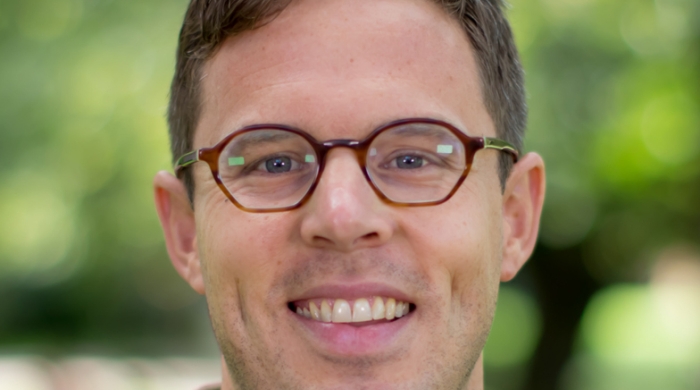
Matthew Powers (PhD 2013)
Matthew is an Associate Professor in the Department of Communication at the University of Washington-Seattle. His dissertation "Humanity's Publics: NGOs, Journalism and the International Public Sphere" examined reporting roles assumed by international NGOs as legacy media outlets cut their foreign news budgets, and received the Gene Burd Outstanding Dissertation in Journalism Studies award from the International Communication Association.
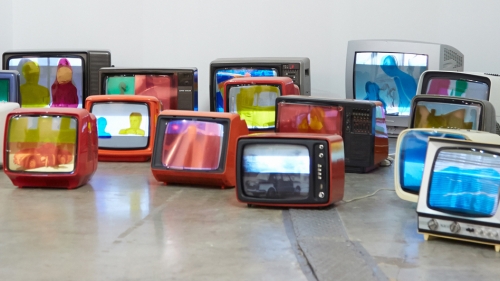
Media, Culture, and Communication
239 Greene Street, 8th floor New York, NY 10003 212-998-5191 | contact
Land Acknowledgement
Take the Next Step
Advance your personal and professional journey – apply to join our community of students.
- Find a course
- Undergraduate study
- Postgraduate study
- MPhil/PhD research
- Short courses
- Entry requirements
- Financial support
How to apply
- Come and meet us
- Evening study explained
- International Students
- Student Services
- Business Services
- Student life at Birkbeck
- The Birkbeck Experience
- Boost your career
- About Birkbeck
- Contact Birkbeck
- Faculties and Schools
- ReciteMe accessibility
Digital Culture and Communication
Application options include:
Course Overview
Our MPhil/PhD programme in Digital Culture and Communication invites you to submit a proposal for research on the digitally mediated dimensions of aesthetics, affect, art, cities, everyday life, politics and the (post) human condition.
An MPhil/PhD is an advanced postgraduate research degree that requires original research and the submission of a substantial dissertation. The MPhil thesis is not more than 60,000 words; the PhD thesis is not more than 100,000 words. This programme also welcomes practice-based PhD theses, the requirements for which vary according to the nature of the research and should be discussed with the admissions tutors. Both the MPhil and the PhD are assessed by a viva voce examination.
We offer an exceptionally stimulating environment , where your digital culture and communication research will flourish in a wider interdisciplinary context. We have critically engaged research clusters working on cultural policy, creative labour, curatorial practice, digital aesthetics, digital politics, essay film, film exhibition, journalism and democracy, media reform, mediated spaces and television studies.
Our aim is to offer a programme of seminars, lectures, conferences, workshops and reading groups that not only help you build your research skills, but generate a sense of intellectual community, based on dialogue and mutual support. You will also be offered training sessions at all levels of the College, including at the Birkbeck Graduate Research School (BGRS) .
At Birkbeck, you are initially registered on an MPhil and you upgrade to a PhD after satisfactory progress in the first year or two (full time). You need to find a suitable academic supervisor at Birkbeck, who can offer the requisite expertise to guide and support you through your research. Find out more about undertaking a research degree at Birkbeck .
Key information
Digital culture and communication mphil/phd: 7 years part-time, on campus, starting 2024-25.
- October 2024
- January 2025
Digital Culture and Communication MPhil/PhD: 4 years full-time, on campus, starting 2024-25
Find another course:
- This MPhil/PhD in Digital Culture and Communication is offered as part of a range of competitively awarded PhD studentships funded by support from UK Research and Innovation, charities, government and external partners.
- The award-winning Birkbeck Cinema is central to our research culture. The 70-seat cinema is equipped with 35mm and state-of-the-art DCP projection. Our Birkbeck Institute for the Moving Image (BIMI) runs a busy, intellectually stimulating programme of events, including conferences, screenings and film-related events of all kinds, including at our cinema.
- You will have the opportunity to participate in and attend the Essay Film Festival , jointly run by BIMI and the Institute of Contemporary Arts (ICA), with free admission to events hosted at Birkbeck. You will also be able to take advantage of practical film-making opportunities offered through the Derek Jarman Lab .
- The Vasari Research Centre for Art and Technology integrates a wide range of digital culture research at Birkbeck, while making available equipment and systems to students, interns and academics. In addition, the Birkbeck Interdisciplinary Research in Media and Culture (BIRMAC) provides a unique space for reflective critical inquiry on media and culture, where researchers from different disciplines can gather and participate in a sustained intellectual conversation in a truly interdisciplinary context.
- As well as the Birkbeck Library , you will have access to the nearby Senate House Library , various libraries of the University of London colleges, the British Library , as well as other specialist collections and institutions in central London, including the British Film Institute library.
- Birkbeck was ranked as one of the top four universities in the UK for its Art and Design research in the 2021 Research Excellence Framework. Birkbeck’s research excellence overall was confirmed in the 2021 Research Excellence Framework with 83% of our research rated world-leading or internationally excellent.
Entry Requirements
A good degree in media and communication studies, cultural studies, or other related areas in the social sciences, humanities or computer science. Depending on your background and research experience, a BA might be sufficient. Generally we recommend that you apply with a good MA degree.
You will also need to submit a specific indication of research interests with your application, and a 2000-word proposal.
English language requirements
If English is not your first language or you have not previously studied in English, the requirement for this programme is the equivalent of an International English Language Testing System (IELTS Academic Test) score of 7.0, with not less than 6.0 in each of the sub-tests.
If you don't meet the minimum IELTS requirement, we offer pre-sessional English courses, foundation programmes and language support services to help you improve your English language skills and get your place at Birkbeck.
Visit the International section of our website to find out more about our English language entry requirements and relevant requirements by country .
Visa and funding requirements
If you are not from the UK and you do not already have residency here, you may need to apply for a visa.
The visa you apply for varies according to the length of your course:
- Courses of more than six months' duration: Student visa
- Courses of less than six months' duration: Standard Visitor visa
International students who require a Student visa should apply for our full-time courses as these qualify for Student visa sponsorship. If you are living in the UK on a Student visa, you will not be eligible to enrol as a student on Birkbeck's part-time courses (with the exception of some modules).
For full information, read our visa information for international students page .
Please also visit the international section of our website to find out more about relevant visa and funding requirements by country .
Please note students receiving US Federal Aid are only able to apply for in-person, on-campus programmes which will have no elements of online study.
Digital Culture and Communication MPhil/PhD: 7 years part-time or 4 years full-time, on campus, starting in academic year 2024-25
Academic year 2024–25, starting october 2024, january 2025, april 2025.
Part-time home students: £2,539 per year Full-time home students: £4,786 per year Part-time international students : £7,525 per year Full-time international students: £14,885 per year
Students are charged a tuition fee in each year of their course. Tuition fees for students continuing on their course in following years may be subject to annual inflationary increases. For more information, please see the College Fees Policy .
If you’ve studied at Birkbeck before and successfully completed an award with us, take advantage of our Lifelong Learning Guarantee to gain a discount on the tuition fee of this course.
Fees and finance
PhD students resident in England can apply for government loans of over £26,000 to cover the cost of tuition fees, maintenance and other study-related costs.
Flexible finance: pay your fees in monthly instalments at no extra cost . Enrol early to spread your costs and reduce your monthly payments.
We offer a range of studentships and funding options to support your research.
Discover the financial support available to you to help with your studies at Birkbeck.
International scholarships
We provide a range of scholarships for eligible international students, including our Global Future Scholarship. Discover if you are eligible for a scholarship .
Our research culture
Our research encompasses journalism, film and television, artistic practice and arts management, and digital media, culture and design . Our work is critically engaged, challenging conventional assumptions about the functions and influence of media and culture, scrutinising institutions, organisations and work practices in the creative industries, and rethinking what media can mean and do.
We place particular emphasis on practice-based research, in which ideas and issues are investigated through activities such as creative film-making and digital design. The research of our academic staff is thoroughly interdisciplinary, and incorporates both historical research and contemporary explorations of our rapidly changing media landscapes.
In the 2021 Research Excellence Framework for Art and Design research Birkbeck was ranked 4th nationally with world-leading achievements for environment (90%), impact (67%) and outputs (65%).
We work with a wide range of partners, including the V&A , the Institute of Contemporary Arts , University of Pittsburgh , BFI , Science and Media Museum , Lux Cinema , Tate Britain , Media Reform Coalition , Action on Armed Violence and Electra , and the facilities available to staff and students include the Vasari Research Centre , the Birkbeck Cinema , the Peltz Gallery and the Derek Jarman Lab .
Teaching opportunities
As part of our commitment to professional development, you have the opportunity to gain experience in teaching at undergraduate and postgraduate levels. There is also a 10-week lecture series, Teaching in the Arts, which is designed to prepare students for teaching humanities in higher education.
Follow these steps to apply to an MPhil/PhD research degree at Birkbeck:
1. Check that you meet the entry requirements, including English language requirements, as described on this page.
2. Find a potential supervisor for your MPhil/PhD research. You can look at the Find a Supervisor area on this page for an overview, or search our Experts’ Database or browse our staff pages for more in-depth information. You may also find it helpful to view the research projects of our current students .
3. Contact the academic member of staff - or the department they teach in - for an informal discussion about your research interests and to establish if they are willing and able to supervise your research. (Please note: finding a potential supervisor does not guarantee admission to the research degree, as this decision is made using your whole application.) Find out more about the supervisory relationship and how your supervisor will support your research .
4. Draft a research proposal of up to 2000 words (excluding references). This needs to demonstrate your knowledge of the field, the specific research questions you wish to pursue, and how your ideas will lead to the creation of new knowledge and understanding. Find out more about writing a research proposal .
5. Apply directly to Birkbeck, using the online application link on this page. If your research proposal meets our entry criteria, and we have an appropriate academic to supervise you, we will invite you for an interview, in person or by telephone. All research students are initially registered on an MPhil and then upgrade to a PhD after making sufficient progress.
Find out more about the application process, writing a research proposal and the timeframe .
Application deadlines and interviews
You can apply throughout the year for commencement in October or the following January.
If you wish to apply for funding, you will need to apply by certain deadlines. Consult the websites of relevant bodies for details.
Apply for your course
Apply for your course using the apply now button in the key information section .
Finding a supervisor
A critical factor when applying for postgraduate study in digital culture and communication is the correlation between the applicant’s intellectual and research interests and those of one or more potential supervisors.
Find out more about the research interests of our academic staff and their areas of research.
Related courses
- Film and Screen Media (MPhil/PhD)
- Cultural Policy and Management (MPhil/PhD)
- Journalism and Communication (MPhil/PhD)
Department of Modern Culture and Media
Ph.d. program.
The Department of Modern Culture and Media (MCM) is committed to a broad spectrum approach to the study of media and culture.
We study machine-enabled media alongside flesh-based media, media ecologies, elemental media, and media infrastructures. A medium may beany means, mode, or material of making, transporting, transmitting, transforming, producing, preserving, collecting, selecting, or deselecting for sound, image, gesture, affect, text and information broadly conceived. Alongside histories and theories of photography, film, television, print, and digital media, we engage decolonial methods and speculative means for the innovation of livable futures. We are sensitive to entanglements among genres, forms, mediums, and materialities of human and nonhuman. We consider modes of extraction, redaction, abstraction, diffraction, interpellation, and circulation as well as habits, ceremonies, or architectures of access involving a broad range of media practices. Our graduate program is a Ph.D. program aimed at: (1) Preparing students to engage in quality scholarship and teaching in the theory, history, and critical analysis of one or more media, in ways that encompass diverse cultural contexts, practices, and historical periods, within a methodological framework that includes awareness of modern textual, cultural, political, social, and performance theory; (2) Preparing students to seek academic appointments in a market that offers positions to media and culture specialists in media-specific disciplinary units (e.g., Film Studies, Television Studies, Digital Studies); in amalgam fields (Media Studies, Cultural Studies, Visual Studies, Performance Studies); and also in programs with expanded concerns (American Studies, Black Studies, Comparative Literature, English, and foreign language Departments). Plans of study in MCM are individualized, based on the student's own particular areas of interest. Students are encouraged to take courses throughout the University, and many take advantage of courses in the broader Humanities as well as in the Arts, the Sciences and the Social Sciences. Many of our Ph.D. students include faculty from outside the department on their preliminary exam committees and on their dissertation committees.
Coursework and Qualifying Reviews
For students entering the program with a B.A., courses are normally completed in the first three years of the program — six courses are taken in the first year, four in the second year and three in the third year. During this period, the student also fulfills the foreign language requirement. After completion of 8 courses in the second year, there is a qualifying review, and the candidate is awarded an M.A. in Modern Culture and Media.
After completion of all coursework in the third year, the candidate takes a three-hour oral preliminary examination. Passing the preliminary examination authorizes her or him to proceed to the doctoral dissertation, which is written during the fourth and fifth years.
Students entering the program with an M.A. from another institution take courses at the same rate as those entering with a B.A. Such students may apply to accelerate their coursework and, if they receive approval, may take their preliminary examination as early as the end of the fourth semester.
Students entering with an M.A. will have their qualifying review after they have completed 6 courses, which is normally at the end of the second semester.
Teaching is considered a vital part of graduate education in this program. We believe that a variety of pedagogical experiences not only contributes to the candidate's professional qualifications but also to her or his intellectual development. A minimum of two years of teaching is required for the degree, but a doctoral student will normally teach more.
A candidate typically begins holding a teaching assistant position in a large introductory course during the second year in the program and continues teaching in various classroom contexts through the fifth year. We try to provide all senior doctoral candidates with at least one opportunity to teach a small, autonomous class on a subject directly related to their dissertation research.
Brown offers five years of guaranteed support for graduate students, including for international students. First-year students are on fellowship. Students in their second and third years work as TAs (one course per semester), leading a discussion section of a large lecture. Students in their fourth year design and teach their own section of MCM 0900 “Undergraduate Seminars in Modern Culture and Media.” Students in their fifth year usually are supported through a combination of TA-ships (again, one course per semester) and university fellowships.
Job Placements
Most, if not all, of our students in the Ph.D. program go on to work in academia, in positions as professors, teaching and doing research. This does not mean it would be impossible to go into some other profession -- curating or working for a non-profit agency, for instance; however, we train students for work in academia.
An annual collection of data pertaining to the employment of Ph.D. alumni one, five, and ten years after graduating. Read more .
5th Year Master’s Degree
MCM concentrators may continue working towards their master’s degree at Brown after completing the bachelor’s degree.
Doctor of Philosophy with a Major in Digital Media
The Digital Media PhD was inaugurated in fall 2004 and is one of the first of its kind worldwide. The program educates research-oriented theorists/practitioners who bring the traditions of the humanities and arts to the design of digital media. The program provides the theoretical and practical foundations for research and leadership careers in academia and industry, critically engaging with the design, use, and role of digital media in culture.
Graduates of the program are prepared to work in industry, public service, and universities, shaping the emerging digital genres and expanding our understanding and mastery of the representational power of the computer.
The PhD program accepts 3-5 new candidates each year.
For more information visit: http://dm.lmc.gatech.edu/program/phd-program/
All PhD programs must incorporate a standard set of Requirements for the Doctoral Degree .
The core curriculum is designed to cover three fundamental areas:
- critical history, theory, and practice of using of computing technologies for expressive purposes
- advanced principles of interaction design
- applied research methods in digital media
| Code | Title | Credit Hours |
|---|---|---|
| Foundational and Required Courses | ||
| The Computer as an "Expressive Medium" | 3 | |
| Principles of Interaction Design | 3 | |
| Historical Approaches to Digital Media | 3 | |
| Discovery & Invention | 3 | |
| Project Studio (repeat 2 times) | 6 | |
| Digital Media Master's Project | 6 | |
| or | Digital Media Master's Thesis | |
| Proseminar in Media Theory | 3 | |
| Proseminar in Digital Media Studies | 3 | |
| Doctoral dissertation in Digital Media | 6 | |
| Minor Concentration | ||
| Minor Concentration | 9 | |
| Electives | ||
| Select five of the following: | 15 | |
| Visual Culture and Design | ||
| Design, Technology & Representation | ||
| Design of Networked Media | ||
| Product Production | ||
| Interactive Narrative/Fiction | ||
| Experimental Media | ||
| Intellectural Property Policy and Law | ||
| Edu Applications New | ||
| Issues in Media Studies | ||
| Globalization and New Media | ||
| Architecture of Responsive Spaces | ||
| Project Studio | ||
| PhD Qualifying Prep (variable credit) | ||
| Special Topics in Digital Media (repeatable) | ||
| Advanced Issues in Interactive Narrative (repeatable) | ||
| Special Topics in Game Design and Analysis | ||
| Special Problems in Human-Computer Interaction | ||
| Special Topics in Technologies of Representation (repeatable) | ||
| PhD Doctoral Prep | ||
| Total Credit Hours | 60 | |
These courses are not open to waiver or substitution. Other courses may be substituted with equivalent previous work or alternate courses. Students should consult their advisors and the Director of Graduate Studies to determine the appropriate individual course of study.
Three related courses outside of the School of Literature, Communication, and Culture. These courses may be in other Schools of the Ivan Allen College, or in colleges or interdisciplinary fields of the Institute. Examples of a minor concentration in Computer Science: CS 6750 , CS 6460 , CS 6470 .
This requirement must be certified by filing a form signed by the DGS with the Georgia Tech graduate office. The form is available online at http://www.gradadmiss.gatech.edu/theses-dissertations .
Elective courses from other academic units may be substituted with approval of the DGS.
This site uses cookies. Review the Privacy & Legal Notice . Email questions to [email protected]
Print Options
Send Page to Printer
Print this page.
Download Page (PDF)
The PDF will include all information unique to this page.
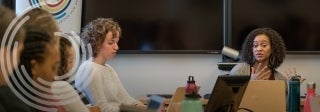
- Center on Digital Culture and Society
Reimagining our common future through critical scholarship and dialogue on digital culture, technology, and society.
Founded in July 2019, the Center on Digital Culture and Society (CDCS) at the University of Pennsylvania’s Annenberg School for Communication supports critical, interdisciplinary scholarship and dialogue on digital culture, technology, and society. CDCS aims to create collaborative spaces for discussion and debate among academics, citizens, and activists; develop critical approaches to the study of digital culture and technology; help train new generations of digital researchers at the University of Pennsylvania and beyond; build global networks of researchers; advocate for socially just design, production, and use of digital technologies; and explore and foster new visions of digital futures through scholarship and public communication.

Recent Publications
CDCS researchers produce critical and interdisciplinary scholarship on how digital technologies shape culture, politics, and society.
Worker Resistance in Digital Capitalism| Platform Counterpublics: Networked Gossip and Resistance Beyond Platforms
Never Forget? Memory Maintenance on an Aging Platform
The Sociotechnical Imaginaries of 1968
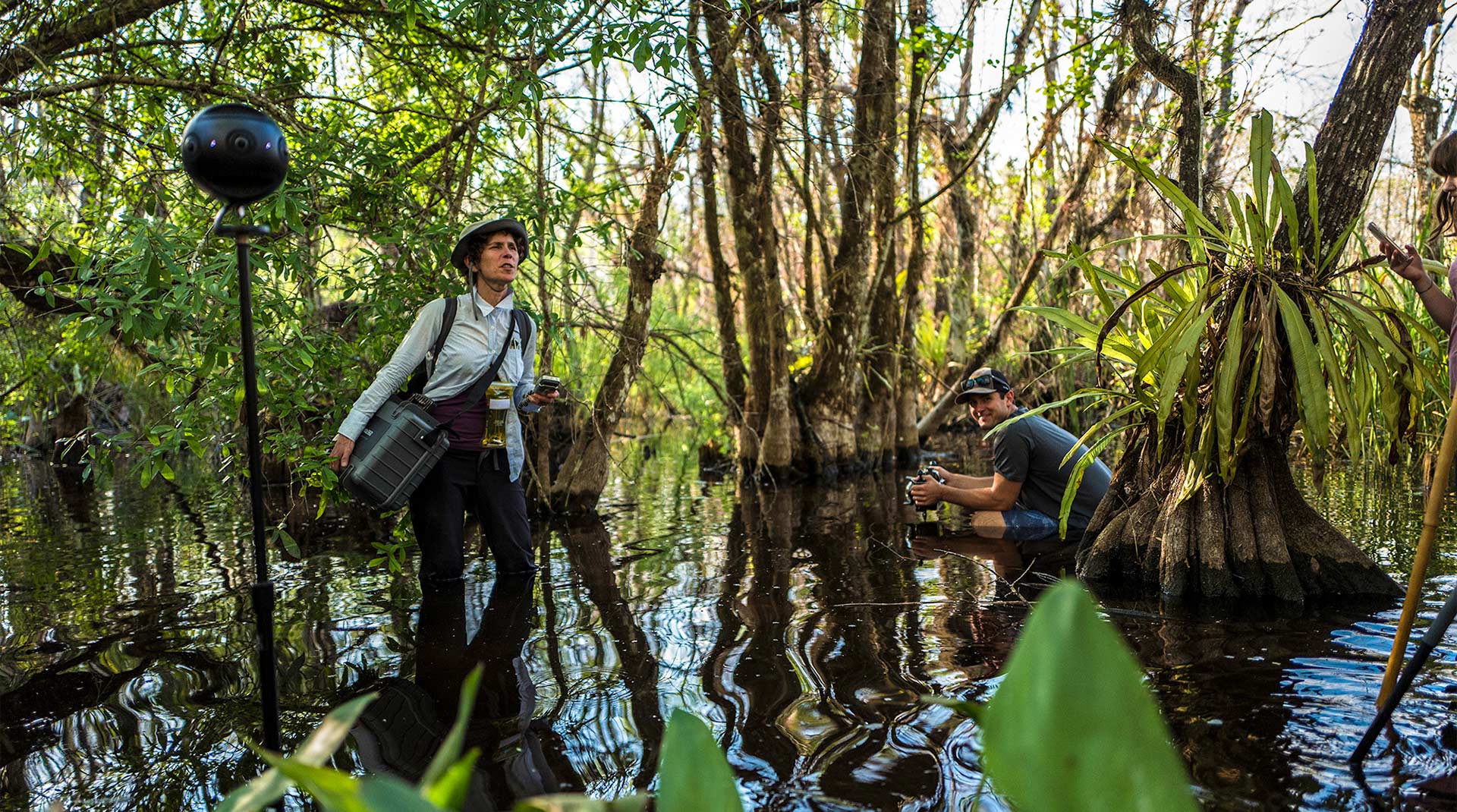
The Digital Radical
From the activist deploying technology for political causes to the individual who consciously disengages with online life, CDCS is building a collection of stories about ordinary people with radical relationships to digital technologies.
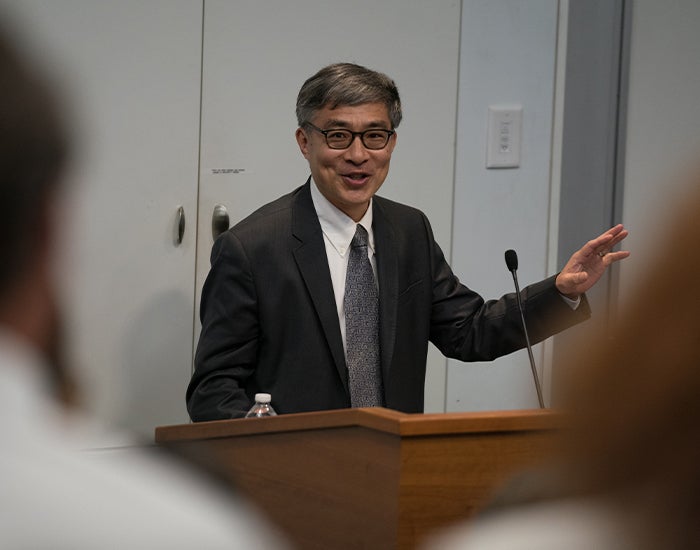
Write For Us
We invite submissions to our online magazine, The Digital Radical , from anyone with a story to tell about a person or group who practices a radical orientation toward digital media and technologies. A new story is published every month. See our call for submissions.
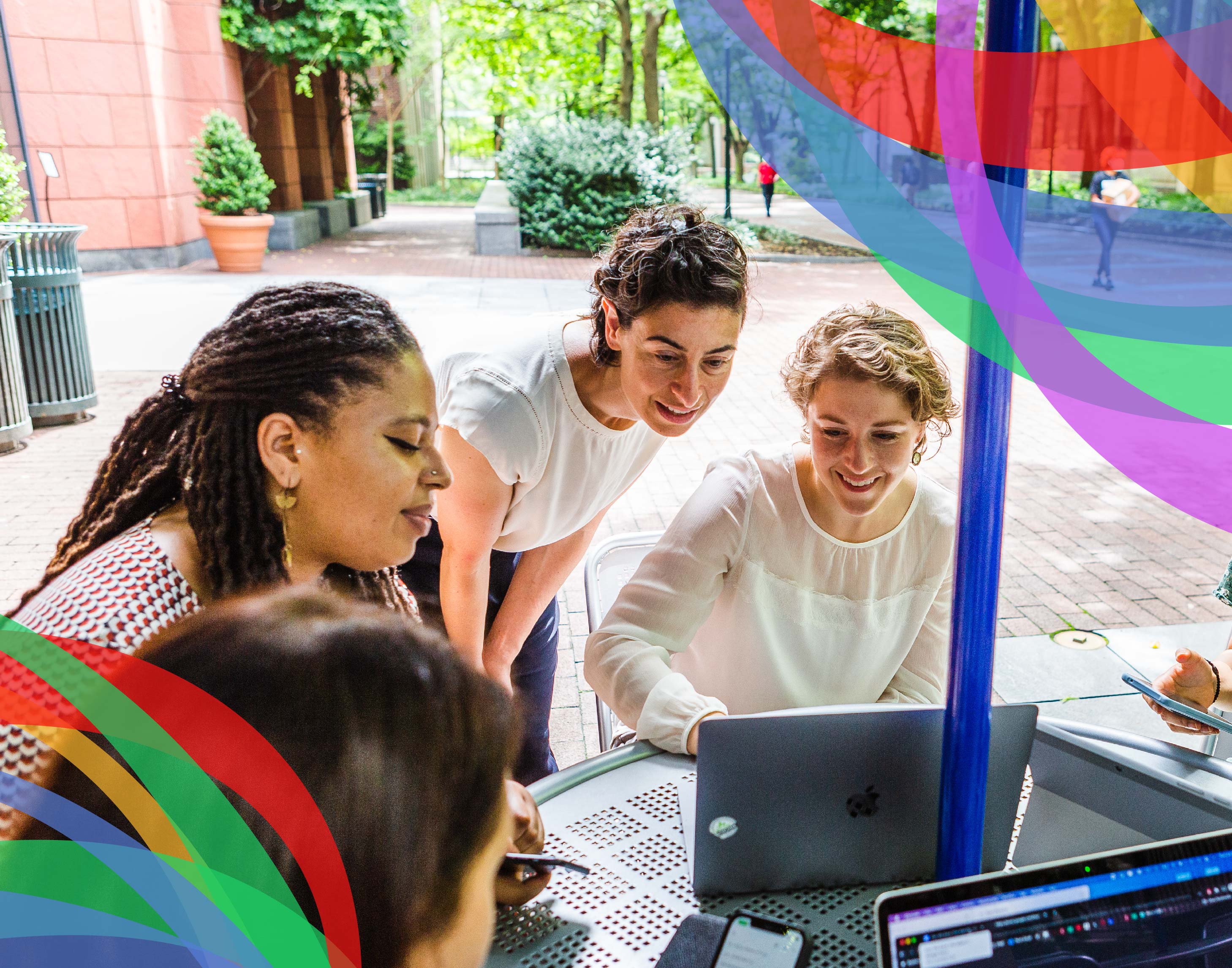
Learn With Us
New for 2022, the Executive Program in Digital Media for Social Impact (DMSI) helps changemakers advance their social media strategies.
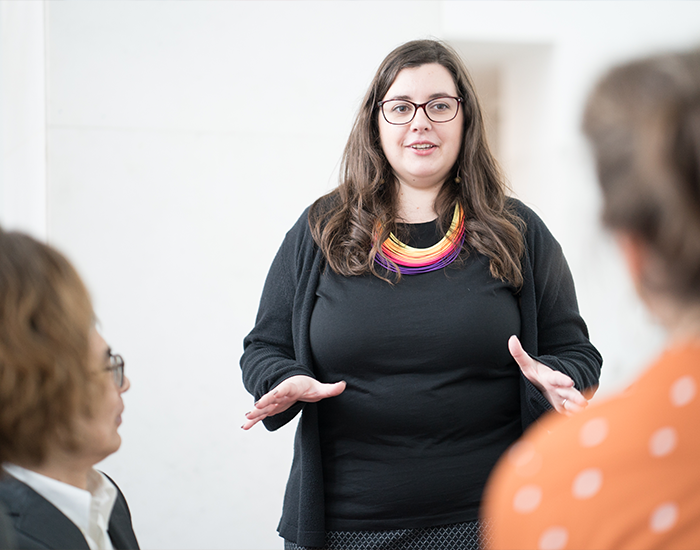
Collaborate With Us
Want to work with us? We welcome invitations for collaborations and cosponsorships at the intersection of digital culture and society and also offer opportunities for nonresidential fellowships. Contact us for more information.

Connect With Us
To stay up to date on CDCS news and events, follow us on Twitter (@cdcspenn) and subscribe to our newsletter below!
Photo Credit: iStock / Keattisak A
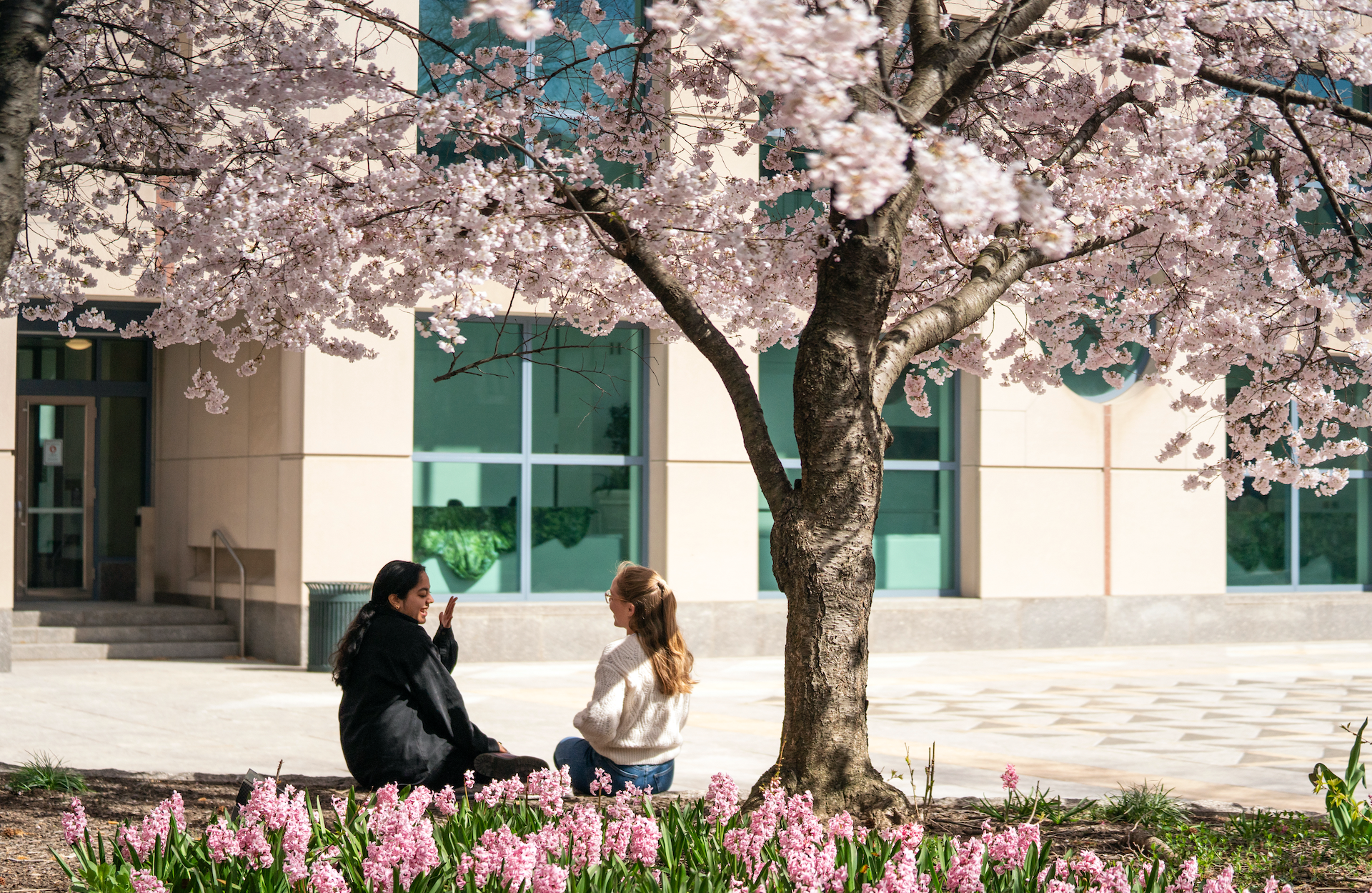
Annenberg Furthers Research Through Educational Collaborations
Annenberg’s growing number of collaborations within Penn and with other institutions around the world is pushing the boundaries for research and education.
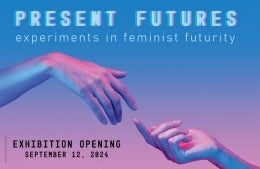
Call for Artists: Present Futures - Experiments in Feminist Futurity
Llamado de artistas: present futures - experiments in feminist futurity.
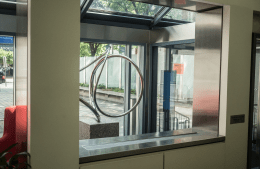
New Postdoctoral Fellow to Join CDCS
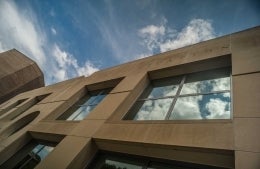
Call for Applications: Postdoctoral Fellowship - Center on Digital Culture and Society
Present futures: experiments in feminist futurity.
- Annenberg Center for Collaborative Communication
- Center for Advanced Research in Global Communication
Transnational Feminist Networks Symposium
Wechat, diaspora, and a new chinese transnationalism, more in center on digital culture and society.
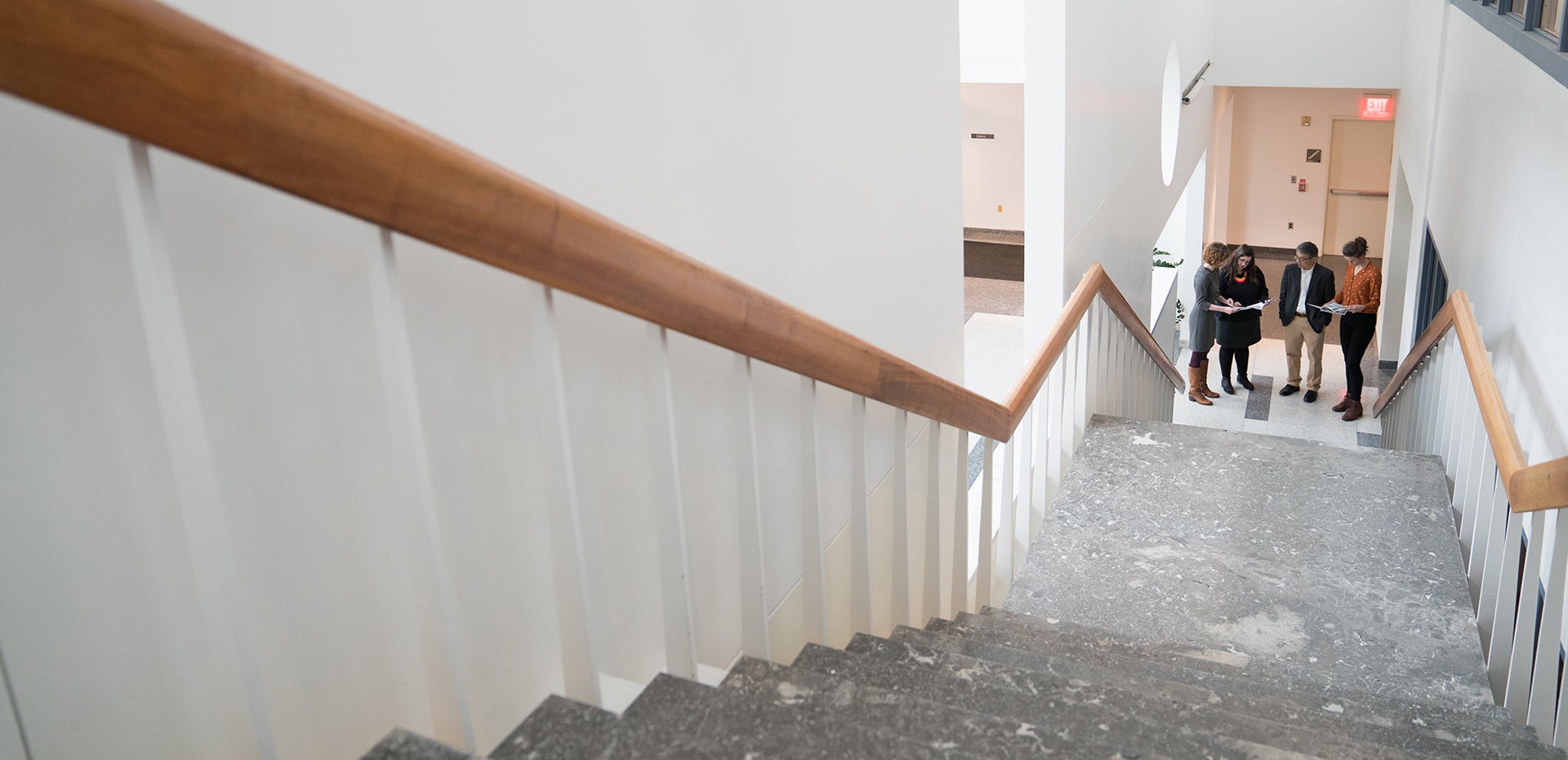
Subscribe to Our Newsletter
Sign up for occasional news and events from the Center on Digital Culture and Society.
Department of Arts and Cultural Studies
Digital culture.
Datafication, platformisation, and digitalization are significantly reshaping contemporary societies and cultures, giving rise to novel cultural expressions, social practices, cultural industries, and material infrastructures.
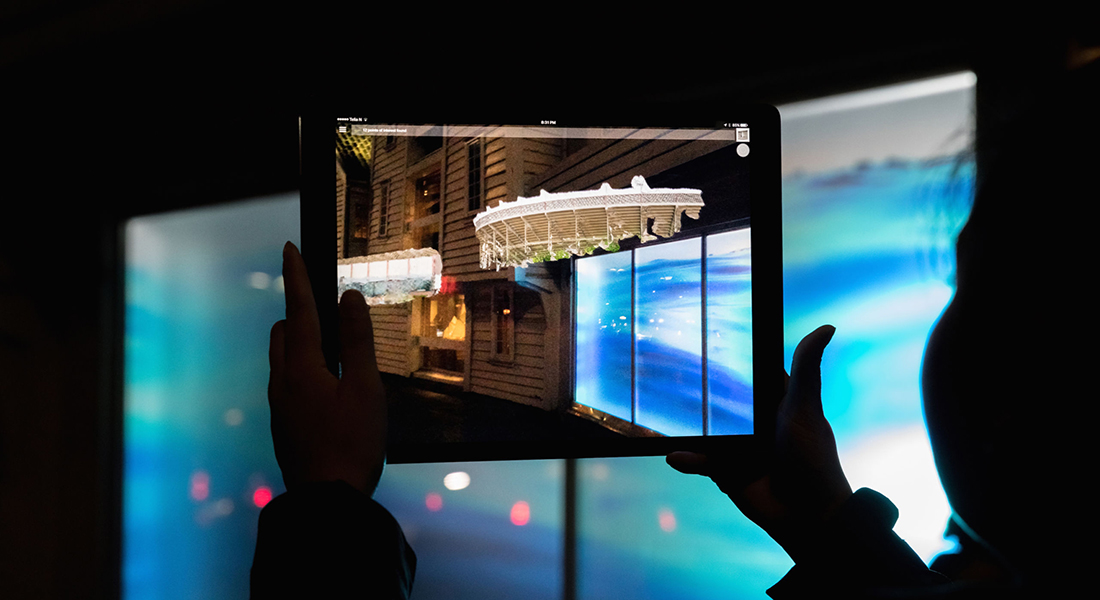
The Digital Culture Research Cluster is dedicated to advancing research that explores the interactions between cultural dynamics and socio-technical infrastructures. The interdisciplinary nature of the work happening within DC spans across cultural theory and studies (encompassing literature, performance, musicology, sound studies, and art history), anthropology, Science and Technology Studies (STS), media and communication studies, information studies as well as critical studies in data and machine learning.
Methodologically, the cluster employs a diverse range of established qualitative and quantitative research methods, including ethnography, archival techniques, and cultural and visual analysis. Additionally, it explores emerging digital and experimental methodologies such as machine learning, digital forensics, and artistic research practices.
Organizationally, the cluster supports various research activities, including informal monthly lunch meetings, internal and external seminars, research excursions, peer-feedback sessions, and networking opportunities with other relevant research communities.
Focus areas
Critical data, algorithm and ai studies.
The research cluster examines the production, distribution and reception of data, models and machine learning technologies, with a particular sensitivity to gendered, racialized, colonial and class-based dimensions of computational regimes, among other things through the Critical Data and Machine Learning Lecture Series organized by AI REUSE and DALOSS .
Digital art & aesthetics
The cluster investigates the cultural roles, emergences, and imaginaries of digital art and artistic research practices, including new media art, music and sound art, video games, expanded reality and virtual worldmaking. Current projects investigate the aesthetic and creative implications of algorithmic behaviours and cultures, genre and the authenticity of data and digital objects.
Everyday use of technology
The research cluster examines the ways in which digital technologies are ingrained in everyday lives – as habits, as mundane practices, as addictions, as algorithmic anticipations that affect the way humans relate, sense and engage with each other (intimacies and communities) as well as their environments (homes, cities, landscapes).
Digital infrastructures
The research cluster investigates the complex interplay between digital infrastructures and forms of materiality in the digital age. A focus of the research cluster lies in the acceleration of platformised distribution and consumption, and the geopolitical potential of digital mediators as well as their relation to the materiality of infrastructures.
Digitalization and platformization of cultural production, industries and institutions
Digitalization of cultural production and institutions impact on a range of economic, political, and aesthetic aspects. Current research projects in the cluster focus on the ways in which forms of digitalization facilitate new socio-cultural practices and cultural imaginaries. Furthermore research projects in the cluster investigate how cultural industries and cultural-economic models shift due to the influence of digitalization, and how digital platforms shape and reconfigure cultural, political and socio-economic landscapes.
Research projects and networks
- Algorithms in Art: Displacements with Algorithmic Culture in Danish Art since 1990
- Data loss (DALOSS): the politics of disappearance, destruction and dispossession in digital societies
- Don’t Take It Personal: Information and Privacy in the Algorithmic Age
- Follow Me: The Influence of Danish Digital Media Creators
- The platformisation of culture: Cultural policy, art museums and digital communities in the age of tech giants (in Danish)
- The Aesthetics of Bio-machines and the Question of Life
- Uncertain Archives
- Algorithmic Software Culture: Capturing, Theorizing and Regulating Social Media
Cluster leaders: Tanja Wiehn and Nanna Bonde Thylstrup
Forum Lectures #28: Orit Halpern
April circle, making music in the age of information capitalism.
Show all events
Researchers
| Name | Title | Phone | |
|---|---|---|---|
| Assistant Professor | +4535321265 | ||
| Research Assistant | +4535332210 | ||
| Associate Professor | |||
| PhD Fellow | +4535324016 | ||
| Associate Professor | +4535331486 | ||
| Associate Professor | +4535329278 | ||
| PhD Fellow | |||
| Associate Professor | +4527584257 | ||
| PhD Fellow | +4535337748 | ||
| PhD Fellow | +4525473200 | ||
| Research Assistant | +4535328323 | ||
| Postdoc | +4535332314 | ||
| Assistant Professor - Tenure Track | +4535325749 | ||
| Associate Professor - Promotion Programme | +4535334024 | ||
| Associate Professor - Promotion Programme | +4535328237 | ||
| Associate Professor - Promotion Programme | +4520404914 | ||
| Teaching Associate Professor | +4528197656 | ||
| Postdoc | +4535321262 | ||
| Teaching Associate Professor |
Secondary Menu
- Community Topics
PhD Lab in Digital Knowledge
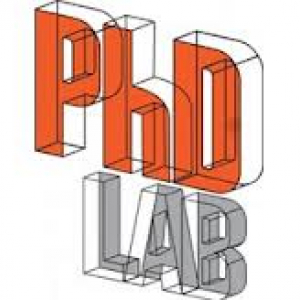
The PhD Lab in Digital Knowledge is sponsored by the Digital Humanities Initiative at the John Hope Franklin Humanities Institute . The lab is led by Philip Stern (History) and Victoria Szabo (Art, Art History & Visual Studies). Graduate students affiliated with the PhD Lab are invited to join an interdisciplinary community of practice, and are encouraged to share their work in periodic in-person and online gatherings. Our home base is in Smith Warehouse, Bay 4, Room C104.
Spring 2023 Events
The Digital Humanities Initiative and the PhD Lab sponsor periodic events related to the Digital Humanities. Recent and upcoming events include:
- A talk by recent CMAC PhD graduate Evan Donahue, current postdoctoral fellow at the U of Tokyo on his current research (20 January 2023)
- Digital Culture and Literature Working Group (first meeting on 26 January 2023)
- A talk and workshop series by current postdoctoral fellow Yuan Julian Chen on Historical GIS (9 February 2023)
- A UNC/Duke Critical Games Symposium to be held at UNC (24 February 2023)
- Open discussion sessions on digital humanities research, pedagogy, and curriculum (March and April 2023)
- DH Summer Grant Recipient Symposium Sessions (Thursday 11:30-1; dates TBA in April 2023)
- In addition, Duke Libraries and other campus programs frequently sponsor events of DH interest. Follow the Events page on our website, as well as our PhD Lab Twitter Feed for more information on the latest news.
Working Groups, Projects, and Events
The DHI@FHI helps support discussions, working groups, seminars, events, and more. Visit our website, contact the Lab Co-Directors or contact FHI Associate Director Christina Chia for more information on current opportunities. If you apply through FHI directly for working groups, course development, event support etc. do be sure to mention the PHD lab in your application so it gets flagged for our attention and support.
Digital Humanities Summer Research Grants
In Summer 2022, 17 PhD students received $2750 grants to support independent research in the digital humanities. During the 2022-23 academic year the grant recipients are reporting back on their experiences in periodic group symposium sessions. In addition, PhD Lab grantees are encouraged to join events sponsored by the Duke Digital Humanities Initiative, to self-organize into working groups, and to suggest additional activities for the graduate DH community as a whole.
In response to feedback on this year's program, we anticipate offering a revised, variable-amount summer research grants program to PhD students again in 2023, and with optional additional support to sponsor workshops, working groups, and events during the academic year following the award. Potential applicants will be invited to an information session in February 2023, where will we provide further details on grant amounts and expectations; a call for applications will circulate mid-February.
Digital Humanities Summer Graduate Assistantships
In addition to our summer grants program, the PhD Lab plans to partner with the John Hope Franklin Humanities Institute, Humanities Unbounded, and North Carolina Central University on a small number of Summer Graduate Assistantships focused on the development of digital humanities curriculum and training. More information coming soon!
Digital Humanities TA-ships
Depending on common interests and resource availability, some students may also also be offered the opportunity to TA for a digital humanities course at NCCU or Duke in future semesters. More information on this potential program will be available later in Spring 2023 and Fall 2023.
Courses and Training
Depending on student interest, the PhD lab may organize workshops and tutorial sessions for graduate students. If you would like to suggest - or offer - a workshop, contact us!
Graduate students are also encouraged to take classes such as ISS 580S: the Interdisciplinary Humanities Proseminar (required for the MA in Digital Art History/Computational Media), and to sign up for the Information Science + Studies Graduate Certificate. The ISS Program offers and cross-lists a variety of courses relevant to students with digital humanities interests. Students may also be interested in courses and opportunities associated with the Computational Media, Arts & Cultures program and labs. FHI is a co-sponsor of the interdisciplinary CMAC PhD, and hosts speakers and events related to critical digital humanities in conjunction with CMAC offerings.
DHI@FHI Brochure
- Support Units
- DH at Duke Libraries (LibGuide)
- DH Bibliography (DAHVC Lab Resource)
- Duke Based Projects
- Other Projects
- Humanities Unbounded
- Bass Connections
- Information Science + Studies
- Computational Media, Arts & Cultures
- Digital Art History & Visual Culture Research Lab
- Duke Game Lab
- Rhodes Information Initiative - Computational Humanities
- ScholarWorks at Duke Libraries
- NCCU Fellows
- ScholarWorks

- Faculty of Arts, Humanities and Cultures
- School of Media and Communication
- Research and innovation

Digital Cultures
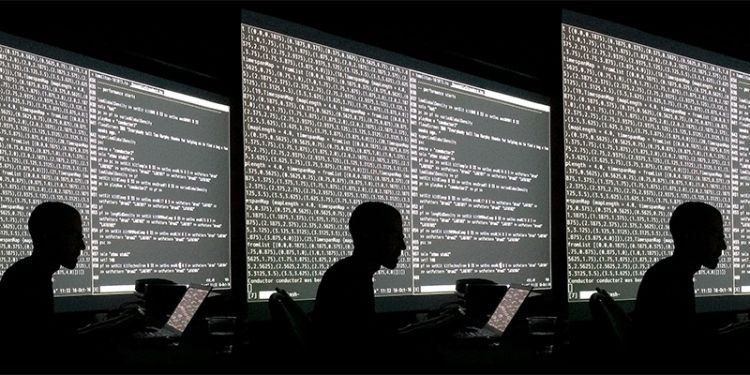
Our research
The Digital Cultures research group is interested in how digital media and technologies can act as disruptive - and potentially transformative - forces in society.
This group engages with the digital in its different dimensions: as objects, as structures and as processes.
It develops conceptual and methodological innovations to better understand these dimensions. It also considers wider societal arrangements and how these impinge on those same dimensions.
The key research themes of the group include:
- how the affordances of digital objects affect our sense and perception of the world and our place within it
- how digital objects and methods can be used, or can be influential, in civic and political communication and culture
- how practice-based research and digital creation can be a key force in contemporary culture, producing structures that facilitate and influence everyday decisions and experiences.
Impact and engagement
The Digital Cultures research group has worked on a number of projects to develop changes in practice associated with access to digital tools for communities, including those with intellectual disabilities, the mapping and modelling of at-risk environments, the exploration of sensory and virtual reality tools in heritage contexts, community coding, gender, copyright and digital archives. We are focussed on how digital objects and methods can be used, or can be influential, in civic and political communication and culture.
Research projects
Explore our past and present research projects here.
Academic team
Dr Joanne Armitage and Dr Chris Birchall .
Visit our profiles for more information about our academic team.
PhD researchers
Get in touch with one of our PhD researchers .
Media contacts
If you require a media expert, contact the University of Leeds Press Office by calling +44(0)113 343 4031 or by emailing [email protected] .

Global Digital Cultures
Digitization is transforming cultural practices, from friendship, intimacy and sexual relations, to the construction, targeting, and surveillance of publics. Digital platforms and mobile apps, such as Facebook, Tinder, YouTube, Instagram, Netflix, the Russian platform VK, and the China-based WeChat, TikTok, and Tantan, have rapidly become central to the production, circulation, consumption, and monetization of culture. The complexity and scale of these changes require active collaboration across a wide variety of disciplines, including economics, the social sciences and the humanities. With this in mind, the GDC will build on and further strengthen existing interdisciplinary and cross-Faculty collaborations within UvA and beyond to identify vital topics, shape research agendas and develop innovative methods.
There are no upcoming events at this time.
We aim to build a vibrant, interdisciplinary, research community across the University of Amsterdam and beyond, to compare and analysing the profound changes brought about by digitisation across the globe. Early career and PhD scholars are especially encouraged to get involved, attend events, and apply for the funding opportunities.
Recent posts

Or browse categories
- Upcoming Conferences
- Calls for Papers
- Vacant Positions
- PhD Courses
- Calls for Actions
- Find a Researcher
- Book Publishers
- Institutions
- Educational Programmes
- Associations and Networks
- Open Data Sources
- NordMedia Conference 2025
- NordMedia Conference 2023
- Pre-Conference for Doctoral Students 2025
- Divisions and Temporary Working Groups
- Previous Conferences
- About NordMedia
- Collaborations
- News keyboard_arrow_down
- Upcoming Conferences keyboard_arrow_down
- Calls for Papers keyboard_arrow_down
- Vacant Positions keyboard_arrow_down
- PhD Courses keyboard_arrow_down
- Calls for Actions keyboard_arrow_down
- Find a Researcher keyboard_arrow_down
- Journals keyboard_arrow_down
- Book Publishers keyboard_arrow_down
- Funders keyboard_arrow_down
- Institutions keyboard_arrow_down
- Educational Programmes keyboard_arrow_down
- Associations and Networks keyboard_arrow_down
- Open Resources keyboard_arrow_down
- NordMedia Conference 2023 keyboard_arrow_down
- Divisions and Temporary Working Groups keyboard_arrow_down
- Submission Guidelines 2023 keyboard_arrow_down
- Pre-Conference for Doctoral Students 2025 keyboard_arrow_down
- Registration keyboard_arrow_down
- Previous Conferences keyboard_arrow_down
- About NordMedia keyboard_arrow_down
- Collaborations keyboard_arrow_down
- FAQ keyboard_arrow_down
- Contribute keyboard_arrow_down
PhD Research Fellowship in Digital Culture – Digital Narrative and Digital Humanities
Norway University of Bergen
There is a vacant PhD position at the Department of Linguistic, Literary and Aesthetic Studies at the University of Bergen, starting during the Autumn 2022 semester. The appointment is for a fixed term of four years.
The successful candidate’s PhD project will investigate digital narrative as expressed through electronic literature, computer games, social media narratives, computational narrative systems, or new forms of digital narrative that use emerging technologies such as machine learning systems, XR, or conversational interfaces. The project may also integrate comparative analysis across different genres of digital narrative.
The project should apply digital humanities research methods and preferably make use of the ELMCIP Electronic Literature Knowledge Base . These methods could for instance include data collection and curation, data analysis and visualization or interface design. Queer and intersectional perspectives addressing bias in digital humanities research infrastructure are also welcome.
The position will be associated with the Center for Digital Narrative (CDN) , a finalist in the 2022 Norwegian Centers for Research Excellence scheme. The initiative is dedicated to humanities-driven research in electronic literature, games studies, digital culture, and computation to advance understanding of digital narrative. The research plan focuses on algorithmic narrativity, new environments and materialities, and the shifting cultural contexts in which digital narratives are received and processed. We will investigate how the interactions of human authors and non-human agents result in new narrative forms, how the materialities of digital narratives have changed over time, and how cultural contexts are reshaping the use and function of digital narrative.
Applicants must submit a proposed PhD project and a project description (see “How to apply” for details).
Qualifications and personal qualities:
- The applicant must hold a Norwegian master’s degree or an equivalent foreign research-based MA (a five-year degree including the BA) in a relevant discipline such as digital culture, digital humanities, literary studies, game studies or media studies. It is a condition of employment that the master’s degree has been awarded at the time of application. Applicants who do not have a Norwegian master’s degree will be evaluated according to the regulations of the Norwegian Agency for Quality Assurance in Education (NOKUT).
- As a rule, the applicant must have earned the grade A or B on their master’s thesis. The scope of the master’s thesis must be a minimum of 30 ECTS (one semester’s full-time work).
- The applicant must both be able to work independently in a well-structured way and have good collaboration skills.
- The applicant must be proficient in both written and oral English.
Applicants will be evaluated according to admission requirements in The Faculty of Humanities’ PhD Program pt. 2.1.
Experience in the following areas is an advantage:
- Experience researching digital narratives in the MA thesis or other work.
- Experience contributing to, analyzing data from, or otherwise working with a digital humanities database.
- Teaching experience.
About the PhD position:
The main purpose of a PhD research fellowship is to complete a doctoral degree, which qualifies for independent research and for other forms of employment that demand specific competency. The duration of the PhD position is four years, of which 25 percent of the time comprises duties associated with teaching, dissemination of results, and administration. The plan for this part of the position is developed in collaboration with the department at the beginning of the employment period.
The employment period may be reduced for candidates who have previously been employed in a recruitment position at other institutions. Applicants who have already held a PhD position at the University of Bergen are not eligible for employment.
The PhD fellow will participate in Digital Culture events, PhD research schools, workshops and seminars at the University of Bergen.
The PhD position demands that the applicant has his or her regular workplace at the University of Bergen, at the Department of Linguistic, Literary and Aesthetic Studies and complies with the guidelines that apply to the position.
International Center UiB has information about moving to Norway for international applicants.
About the research training The PhD Candidates must participate in the faculty’s educational program for a PhD degree, this entails completing a training component of 30 ECTS, annual progress reporting and a midway evaluation halfway through the PhD period. Click here for additional details on the content and requirements of the PhD program at the Faculty of Humanities.
We can offer:
- A good and professionally stimulating working environment.
- Salary at pay grade 54 (Code 1017/Pay range 20, alternative 10) in the state salary scale, currently NOK 490 800 gross p.a. following ordinary meriting regulations.
- Enrolment in the Norwegian Public Service Pension Fund.
- A position in an inclusive workplace (IA) enterprise.
- Good welfare benefits.
How to apply:
Applications must be sent electronically via the link on this site “APPLY FOR THIS JOB”. The applicant must use the electronic CV-form.
The following information must be enclosed and uploaded:
- A cover letter giving a brief account of the applicant’s research interests and motivation for applying for the position. This should address the qualifications and personal qualities listed above, and how the applicant sees themselves fitting in the CDN.
- Relevant diplomas and certificates.
- Names and contact information for at least two references who can be contacted if the candidate reaches the interview stage.
- A short summary of the master’s thesis (up to 3 pages) that explains how it relates to the advertised position.
- A short summary of the proposed project.
- Orientation in the research field. How is the project situated in the field, and how can it bring forward new insights?
- Project objectives, research questions and/or hypothesis.
- Theoretical orientation and methodology.
- A progress plan for the PhD project.
- Bibliography for the proposed project.
- A list of any scholarly publications.
- Copies of up to three scholarly publications.
Attachments can be either in Word or PDF-format. The application and appendices with certified translations into English or a Scandinavian language must be uploaded at Jobbnorge.
General information:
Detailed information about the position can be obtained by contacting professors Scott Rettberg ( [email protected] ) or Jill Walker Rettberg ( [email protected] ),or Head of department Anders Fagerjord, phone 55 58 36 53, email: ( [email protected] ).
The public sector workforce should reflect the diversity of Norwegian society. People with immigrant backgrounds and people with disabilities are encouraged to apply for the position.
The best qualified candidates for the position will be invited to an interview.
The University of Bergen applies the principle of public access to information when recruiting staff for academic positions. Information about applicants may be made public even if the applicant has asked not to be named on the list of persons who have applied. The applicant must be notified if the request to be omitted is not met.
For further information about the recruitment process, click here .
Further information about the application here .
Questions or queries about the electronic application process can be directed to The Faculty of Humanities: [email protected] .
Universitetslektor i medie- och kommunikationsvetenskap med inriktning Strategisk kommunikation
*In Swedish* Örebro universitet skapar framtiden genom internationellt konkurrenskraftig forskning och erbjuder professionsinriktade utbildningar som tillhör landets bästa. Nu kan...
Postdoctoral Position in Journalistic Fact Checking, Facts and Truths in Public Debate
The Department of Communication (COMM), Faculty of Humanities, University of Copenhagen (UCPH), invites applications for a postdoctoral position associated with...
Tenure Track Position in Communication Studies
The University of Vaasa creates an inspiring environment for meaningful work as part of a thriving and diverse university community....

- Data Schools
PhD in Digital Humanities

Click here to sign up to the PhD Virtual Information Sessions on Thursday 26 September or Thursday 21 November .
Requirements
The PhD in Digital Humanities, run by Cambridge Digital Humanities and based in the Faculty of English, is a research-intensive programme that will enable students to engage at doctoral level with projects demanding the use of digital methods, tools, or adopting critical/theoretical orientations. The programme expands the humanities offering at research postgraduate level at Cambridge by offering a route for cross-disciplinary engagement, responding to the growth of the field of Digital Humanities as a research area.
The programme is designed to enable students from many areas of the arts and humanities to develop practical skills and knowledge and to generate the necessary critical literacy to understand and engage with digital research, and digital cultures, and to respond to questions arise around the ethics of automation, algorithmic analysis, privacy/surveillance, virtual cultures, data sharing, intelligent agency and creativity, archival justice and digital histories, and to explore work in relation to collections and heritage issues.
Through supervisions and technical support from a research software engineer, contextualised by a research culture providing research led seminars and lectures, guest seminars, and practice-driven workshops, CDH provides the conditions for original PhD research in Digital Humanities or in other arts, humanities, and social science disciplines that make a significant intervention into shaping the field.
Register to attend the 2024 applicant information session .
Watch the 2023 applicant information session below.
Digital Humanities is an intrinsically interdisciplinary field: we therefore will consider candidates from almost any academic field. You might have a grounding in History, Archaeology, Literature, Linguistics, Art History, Economics, Computer Science, etc. The degree itself involves working with a range of materials from Cambridge Libraries, Museums and Collections and other disciplines.
Academic qualifications
Applicants for this course should have achieved a UK Master’s (Merit).
If your degree is not from the UK, please check International Qualifications to find the equivalent in your country.
University Minimum Academic Requirements
MPhil students in Digital Humanities from Cambridge who wish to continue to the PhD may apply to do so, subject to meeting certain conditions. The expected standard for continuation to the PhD at Cambridge is normally:
- An overall mark of 70 or more for the MPhil course.
- A mark of 70 or more for the dissertation/portfolio submitted as part of the MPhil course.
- Other conditions may also be imposed as deemed necessary.
See general entry requirements for the University of Cambridge
2025-2026 fees TBC
2024 Home students: £9,387
2024 Overseas students: £28,401
Anyone who applies to a postgraduate course at Cambridge can also apply to be considered for funding.
Every year the University of Cambridge awards over £100m in scholarships to new postgraduate students. This money comes from many generous University and College endowments, as well as government Research Council (UKRI) funds . A lot of our students also fund their studies from external sources such as charities or government schemes and loans.
Our major internal sources of funding are:
- Cambridge Trust
- Gates Cambridge Trust
- Harding Distinguished Postgraduate Scholars Programme (HDPSP)
- Research Councils (UKRI)
- Colleges and departments
Find a general funding overview here
European Funding Guide
The European Funding Guide is the largest online-platform in the EU for finding financial aid. The platform contains over 12,000 scholarships, grants and awards across the whole EU worth more than 27 billion Euros per year. Over 4,000 of these are specifically targeted at UK students.
General Enquiries
Admissions Enquiries
www.postgraduate.study.cam.ac.uk/contact-form
Social Media
CDH on Instagram
CDH on LinkedIn
Applications for PhD entry in the academic year 2025-26 will open in September 2024. The deadline is usually early January.
Applications for entry via Gates (US) scholarships in the academic year 2025-26 will open in September 2024.
For more information and a link to the application portal, look up Digital Humanities in the Postgraduate Course Directory after applications open.
Subscribe to the postgraduate mailing list to be informed when deadlines are announced.
Research areas and supervision
Do i need to contact my prospective supervisor to discuss my proposal.
Doctoral applicants need not send enquiries to potential supervisors prior to application. Supervisors are allocated after the admissions process and allocation depends on a number of factors in addition to research interests.
What are the main research areas covered at CDH? What research areas will CDH develop in the future?
Our aim is to further an expansive form of Digital Humanities that encompasses work with collections, literature as digital humanities, global digital humanities, critical media theorisation, digital media, methodological advancement, future and emerging technologies including AI and machine learning, and much more. You can find out more about our research activities at cdh.cam.ac.uk/research and a general statement about our research areas at cdh.cam.ac.uk/about .
My research looks at a topic that isn’t fully covered by the supervisory team at CDH. Can I still apply to the programme?
Research proposals that move beyond the specialisms of our supervisory team may still work within CDH, however, you may wish to consider applying to a PhD programme in another department. You will be able to engage with our programme and graduate training opportunities as a Cambridge student even if you aren’t based in CDH.
How can I better evaluate whether my research would fit with Cambridge Digital Humanities?
If you are unsure whether your intended research fits with the research specialisms available at CDH, please contact us at [email protected]
Application
When is the deadline to apply.
The general deadline for autumn 2025 entry will be early January 2025 (date to be confirmed in September). US citizens, who are based in the US, and are applying for a Cambridge Gates Scholarship must submit their application by early autumn – date to be confirmed soon.
To be notified when further information becomes available, subscribe to the postgraduate mailing list .
What should the research proposal look like?
A PhD research proposal should be 800 words long. It needs to give those assessing your application an impression of the strength and originality of your proposed research, and its potential to make a contribution to knowledge. It should be written in clear, jargon-free, and unexceptionable prose. Grammatical mistakes and typographical errors give a very bad impression. You should make sure you cover the following areas (without explicitly dividing the proposal into headings).
- the research topic: briefly outline the area and topic of your research.
- the research context: relate your proposed research to other work in its field or related fields, and indicate in what ways your research will differ; you might mention monographs on the subject, as well as important theoretical models or methodological exemplars. This is a chance to show your understanding of the background against which your research will be defined.
- the contribution you will make: this is your chance to show how you have arrived at your position and recognised the need for your research, and what it is that makes it both new and important; you should indicate what areas and debates it will have an impact on, what methodological example it sets (if appropriate) – in short how it contributes to knowledge and to the practice of our subject. Give examples of the sort of evidence you might consider, and of the questions it might help you to raise. Show that you are already thinking about the area in detail and not only in outline.
- your methods: in some cases there will be little to say here, but if there is something striking about your methodology, you should explain it.
- the sources and resources you will use: you should delimit your field of enquiry, showing where the project begins and ends; in certain cases, Cambridge will have unique collections and resources of central relevance to your project, and you should mention these.
- how the project will develop: you might indicate some of the possible ways in which the project could develop, perhaps by giving a broader or narrower version depending on what materials and issues you uncover
What is an eligible ‘sample of work’?
The sample of work can be one long piece or several shorter essays (max. 5) amounting to around 5,000—7,000 words in total. You will also need to provide an 800-word research proposal. Find the full list of materials required for PhD applications.
Do you accept applicants who already hold a PhD?
Yes. However, applicants who do not hold a PhD are not at a disadvantage.
If we are currently awaiting results from our Master’s studies, should we wait for these results to be released before applying, or should we apply beforehand?
You can apply before you have been awarded your marks for your Master’s, but you will have to have your marks before you are administered to the PhD course. You would simply add a predicted grade to your application form e.g. ‘Merit predicted’.
Can we apply for part-time studies at CDH?
Yes, you can apply for part-time study.
Where can applicants find details relating to the word count and format for the covering letter, the proposal, and writing sample?
To apply for this course, you’ll need to prepare a number of materials. Please see the full list of requirements on the ‘How to Apply’ section of the application portal: postgraduate.study.cam.ac.uk/courses/directory/elelpddgh/apply .
- Two academic references
- Transcript
- Evidence of competence in English: If required – you can check using our tool
- Covering letter: Applicants need to submit a single page covering letter explaining their rationale for wishing to undertake the course and justifying their case for a place.
- Research proposal: Please submit a 800-word research proposal
- Sample of work (max. 5): Please submit a sample of work which can be one long piece or several shorter essays amounting to around 5,000–7,000 words in total.
If you wish to be considered for a Gates Cambridge Scholarship you will also need to provide the following:
- Gates Cambridge Reference
- Research Proposal (PhD applicants only)
See Gates Cambridge for more information.
If we have mitigating, contextual circumstances that have impacted our grades (e.g. health issues, family situations), how can we best share this context with the department on our applications?
There is room on the application form to include contextual circumstances.
How do I find funding?
The main way to find funding is via the University’s Postgraduate Funding Search , which contains:
- University funding opportunities
- Funded studentships and research projects
- Research Council (UKRI) studentships
A lot of our students also fund their studies from external funding sources such as charities or government schemes and loans. Anyone who applies for a postgraduate course at Cambridge can also apply to be considered for funding to help cover their fees and costs . There are also specific funding opportunities available to applicants from underrepresented backgrounds from both UK households and abroad, including application fee waivers. Normally ‘full’ funding covers everything (including fees and living expenses), but there are sometimes opportunities for partial funding though this is less common.
For general information about postgraduate funding visit: postgraduate.study.cam.ac.uk/funding
For contextual data and widening participation funding, visit: postgraduate.study.cam.ac.uk/funding/contextual-data
If you can’t find what you’re looking for, please email us with any questions at [email protected]
Is there a difference between funding opportunities for part-time and full-time PhD applicants?
Tuition fees are essentially the same, just divided up into more years. We don’t control funding directly, so you should check with the specific funder you are targeting.
For more information about postgraduate funding, visit: postgraduate.study.cam.ac.uk/funding
Have a question we didn’t answer? Contact us at [email protected]
Supervisors.

Professor Caroline Bassett
Director, Cambridge Digital Humanities; Professor of Digital Humanities

Dr Leonardo Impett
University Assistant Professor in Digital Humanities

Dr Anne Alexander
Senior Research Associate; Learning Director

Dr Hugo Leal
Teaching Associate
Cambridge Digital Humanities
Get in touch.
Cambridge Digital Humanities University of Cambridge 17 Mill Lane Cambridge CB2 1RX
Email: [email protected]
Legal links
- Accessibility
- Freedom of information
- Statement on modern slavery
- Terms and conditions
- Privacy and cookies policy
Stay Connected
Receive our newsletter.
Sign up now
© 2024 Cambridge Digital Humanities. All RIghts Reserved.
Web Design by Chameleon Studios
- Opportunities
- Code of Conduct
- Mailing List
- DH Teaching Forum
- CDH Reactor
- Anti-Computing: Dissent and the Machine’
- CDH Funding
- Research Networks
- Academic Visitors and Fellowships
- Research Funding
- Methods Fellowships 2022/23
- (Anti) Colonial Archives Working Group
- Cambridge Data Schools Terms and Conditions
- Teaching and Assessment
- How to Apply
- How to write your research proposal
Tel: +44 1223 766886 Email [email protected]

- Privacy Overview
- Strictly Necessary Cookies
- 3rd Party Cookies
This website uses cookies so that we can provide you with the best user experience possible. Cookie information is stored in your browser and performs functions such as recognising you when you return to our website and helping our team to understand which sections of the website you find most interesting and useful.
These essential cookies do things like: remembering the notifications you've seen so we do not show them to you again or your progress through a form. They always need to be on.
This website uses Google Analytics to collect anonymous information such as the number of visitors to the site, and the most popular pages.
Keeping this cookie enabled helps us to improve our website.
Research Group for Digital Culture
Main content.
The Digital Culture Research Group gathers researchers and post-graduate students from different humanities disciplines who share an interest in studying how technology and culture interact. From July 2023 the group will close, and activities will move to the Center for Digital Narrative .
Jill Walker Rettberg leads the group.
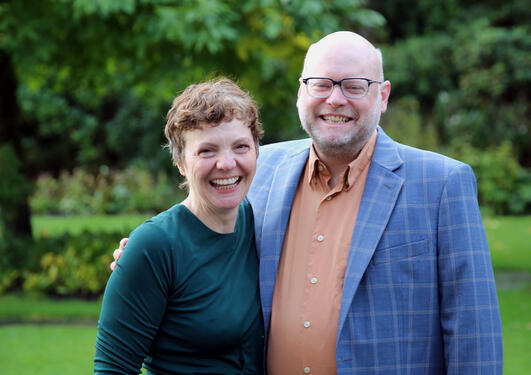
The Center for Digital Narrative has been awarded the status of Centre of Excellence
The Center for Digital Narrative (CDN) has been awarded the status of Center of Research Excellence. The center will investigate new forms of digital narrative in electronic literature, digital games, social media and AI-driven storytelling.
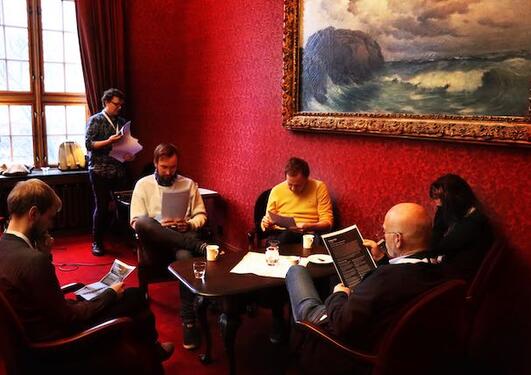
Roleplaying AI and Technology
Jon Andreas Edland developed "Ettersynsing" as a practical master thesis in Digital Culture. Last week he ran it for AI scientists and developers at NORA's annual conference.
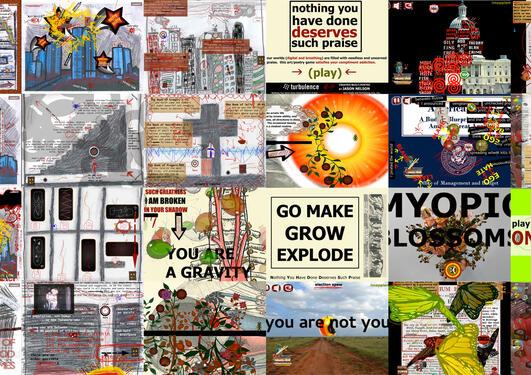
Jason Nelson Appointed Associate Professor at UiB Digital Culture
We are pleased to announce the appointment of Jason Nelson as Associate Professor with UiB Digital Culture.
A Better Understanding of Social Media with Situated Data Analysis

Situated Data Analysis
Jill Walker Rettberg proposes situated data analysis as a new method for analysing how personal data is always constructed and represented in specific contexts.
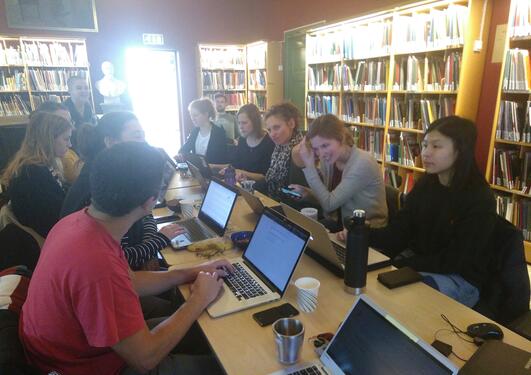
Recap: Wikipedia Editing Workshop
Last Sunday, 10 March 2019, Post-doc Maud Ceuterick and PhD candidate Hannah Ackermans in Digital Culture at UiB organized a feminist Wikipedia Edit-A-Thon to improve the documentation of women and other marginalized people on Wikipedia.
- See all events
- See all news
Select language

New Media & Digital Culture

Doing a Phd
If you have completed your Master's programme, and you are enthusiastic about doing research in your field, then maybe doing a Doctorate (PhD) might be something for you. A Doctor’s degree is the highest academic degree awarded by a Dutch university. You start as 'assistant in training' (aio) or 'researcher in training' (oio).
At Utrecht University
At Utrecht University you take part in education in one of the Graduate Schools and often also teach students. During the four-year PhD programme you work under the guidance of a professor on creating a research project that results in a dissertation or a series of articles in scientific journals. You can search for positions on research projects on offer or a position whereby you are free to submit your own research proposal. Read more on doing a PhD at Utrecht University.
Other options
The best way to find a PhD position is through networking with the professor in the field you wish to specialize. Another option is to search via www.academictransfer.nl . Here you can also find more information on doing PhD research in the Netherlands.
Follow Utrecht University

Digital Culture, MA
- Program description
- At a glance
- Degree requirements
- Admission requirements
- Tuition information
- Application deadlines
- Career opportunities
- Contact information
Digital Culture, Digital Media, Embodied Media, Experimental Media, Interactive Performance, interactive media
ASU is not currently accepting applications for this program.
Are you interested in the computational arts and the intersection of multiple artistic and experiential disciplines? Join us to craft a unique learning experience based on your background and interests, led by globally recognized artists, designers and engineers.
The MA program in digital culture is geared toward practitioners of design and the arts who have an interest in engaging in scholarly knowledge creation at the intersection of computational arts and sciences and seek to enhance their practice through expanded engagement with interactive and embodied media theory and design. The degree program allows artists and designers to explore new avenues for real-time media creation that seek to go beyond current paradigms.
The School of Arts, Media and Engineering educates the next generation of learners and empowers them with technofluency --- its development, application and implications --- and prepares students to be socially aware, critically thinking global citizens who strive to bring about positive change in a society that will be increasingly shaped by new technologies. Its mission is to improve and facilitate learning, creativity and communication; it does this through the integration of human physical experience and computational and digital media practice-based methods.
Students admitted to the Master of Arts program in digital culture can explore:
- critical media theory --- philosophical technologies, speculative design
- engineering --- social and embedded design, system engineering
- experiential media --- interaction design, responsive environments
- machine learning --- AI, augmented reality, virtual reality
- science --- mediated rehabilitation, public participation in science
- sensory --- food design and sensory science, somatic and movement studies
- sound design --- digital composition and performance, acoustic ecology
- sustainability --- sustainability and critical climate studies, urban climate infrastructure
- College/school: Herberger Institute for Design and the Arts
- Location: Tempe
- STEM-OPT extension eligible: No
33 credit hours including the required applied project course (AME 593)
Required Core (12 credit hours) AME 520 Movement and Computing (3) AME 530 Philosophy of Media Technology (3) AME 531 Experiential Media Philosophy (3) AME 532 Creating Interactive Media (3)
Electives or Research (18 credit hours)
Culminating Experience (3 credit hours) AME 593 Applied Project (3)
Additional Curriculum Information Students should check with the academic unit regarding appropriate electives coursework.
Applicants must fulfill the requirements of both the Graduate College and the Herberger Institute for Design and the Arts.
Applicants are eligible to apply to the program if they have earned a bachelor's or master's degree in one of the following areas from a regionally accredited institution: arts, humanities, design, media studies, computer science, engineering or a closely related field.
Applicants must have a minimum cumulative GPA of 3.00 (scale is 4.00 = "A") in the last 60 hours of their first bachelor's degree program or a minimum cumulative GPA of 3.00 (scale is 4.00 = "A") in an applicable master's degree program.
All applicants must submit:
- graduate admission application and application fee
- official transcripts
- letters of recommendation
- statement of purpose
- writing sample
- proof of English proficiency
Additional Application Information An applicant whose native language is not English must provide proof of English proficiency regardless of their current residency.
A portfolio is required; however, submissions will vary depending on the background of each prospective student because of the transdisciplinary nature of the program. Applicants from a wide variety of disciplines are expected to be interested in the master's degree. Key works are requested from applicants to illustrate the types of skills they wish to develop in the program. Examples include games they have designed and programmed, interactive installations and performances (submitted as video), websites they have created or programmed, music they have composed digitally or films they have made.
The statement should explain, in a concise and persuasive manner, how the student's educational, professional and personal experiences inform their research and creative interests, and it should elaborate on any aspect of their background that supports their candidacy for admission to the School of Arts, Media and Engineering.
| Session | Modality | Deadline | Type |
|---|---|---|---|
| Session A/C | In Person | 03/07 | Final |
Graduates of the Master of Arts program in digital culture go on to careers in areas such as:
- acoustics research
- communications
- graphic design
- mobile development
- sound design
- 3D modeling
Arts, Media and Engineering Sch T | STAUF-B 217 [email protected] 480-965-9438 Admission deadlines


Study at Cambridge
About the university, research at cambridge.
- Undergraduate courses
- Events and open days
- Fees and finance
- Postgraduate courses
- How to apply
- Postgraduate events
- Fees and funding
- International students
- Continuing education
- Executive and professional education
- Courses in education
- How the University and Colleges work
- Term dates and calendars
- Visiting the University
- Annual reports
- Equality and diversity
- A global university
- Public engagement
- Give to Cambridge
- For Cambridge students
- For our researchers
- Business and enterprise
- Colleges & departments
- Email & phone search
- Museums & collections
- Course Directory
PhD in Digital Humanities
Postgraduate Study
- Why Cambridge overview
- Chat with our students
- Cambridge explained overview
- The supervision system
- Student life overview
- In and around Cambridge
- Leisure activities
- Student unions
- Music awards
- Student support overview
- Mental health and wellbeing
- Disabled students
- Accommodation
- Language tuition
- Skills training
- Support for refugees
- Courses overview
- Department directory
- Qualification types
- Funded studentships
- Part-time study
- Research degrees
- Visiting students
- Finance overview
- Fees overview
- What is my fee status?
- Part-time fees
- Application fee
- Living costs
- Funding overview
- Funding search
- How to apply for funding
- University funding overview
- Research Councils (UKRI)
- External funding and loans overview
- Funding searches
- External scholarships
- Charities and the voluntary sector
- Funding for disabled students
- Widening participation in funding
- Colleges overview
- What is a College?
- Choosing a College
- Applying overview
- Before you apply
- Entry requirements
- Application deadlines
- How do I apply? overview
- Application fee overview
- Application fee waiver
- Life Science courses
- Terms and conditions
- Continuing students
- Disabled applicants
- Supporting documents overview
- Academic documents
- Finance documents
- Evidence of competence in English
- AI and postgraduate applications
- Terms and Conditions
- Applicant portal and self-service
- After you apply overview
- Confirmation of admission
- Student registry
- Previous criminal convictions
- Deferring an application
- Updating your personal details
- Appeals and Complaints
- Widening participation
- Postgraduate admissions fraud
- International overview
- Immigration overview
- ATAS overview
- Applying for an ATAS certificate
- Current Cambridge students
- International qualifications
- Competence in English overview
- What tests are accepted?
- International events
- International student views overview
- Akhila’s story
- Alex’s story
- Huijie’s story
- Kelsey’s story
- Nilesh’s story
- Get in touch!
- Events overview
- Upcoming events
- Postgraduate Open Days overview
- Discover Cambridge: Master’s and PhD Study webinars
- Virtual tour
- Research Internships
- How we use participant data
- Postgraduate Newsletter
Primary tabs
- Overview (active tab)
- Requirements
- How To Apply
Course closed:
Digital Humanities is no longer accepting new applications.
The PhD in Digital Humanities, run by Cambridge Digital Humanities and based in the Faculty of English, is a research-intensive programme that aims to enable students to engage at doctoral level with projects demanding the use, production and critique of digital methods, tools, approaches, and critical/theoretical orientations. The programme expands the humanities offering at research postgraduate level at Cambridge by offering a route for cross-disciplinary engagement, responding to the growth of the field of Digital Humanities as a research area.
The programme is designed to enable students to develop the critical literacy and practical skills and knowledge to understand and engage with digital futures, digital research, and digital cultures, as questions arise around the ethics of automation, algorithmic analysis, privacy/surveillance, virtual cultures, data sharing, intelligent agency and creativity, archival justice and digital histories, and around collections and heritage issues. Through supervisions and technical support from a research software engineer, contextualised by a research culture including guest seminars, lectures and practice-driven workshops, Cambridge Digital Humanities provides the conditions for original PhD research in Digital Humanities or in other arts and humanities/social science disciplines that make a significant intervention into shaping the field.
The course aims to:
- enable students to engage at doctoral level with projects that require the use and generation of digital methods, tools, approaches, and/or of critical/theoretical orientations;
- expand the humanities offering at research postgraduate level at Cambridge by providing a cross-disciplinary route for engagement, responding to the growth of the field of Digital Humanities as a research area;
- enable humanities and social science-trained students to develop critical literacy and practical skills and knowledge to understand and engage with digital materials and methods for the study of matters relevant to the humanities;
- provide the conditions to enable the production of original PhD research in Digital Humanities or other arts and humanities/social science disciplines that make a significant intervention into shaping the field; and
- respond to the need for the humanities to grapple with emerging forms, practices, and social formations shaped in a digital age.
The course will benefit:
- students with relevant MPhils who want to engage with the field of Digital Humanities, enabling them to hone critical and methodological skills, develop new approaches, test them out, and specialise;
- students locating themselves in other home disciplines who wish to develop advanced projects including Digital Humanities approaches and orientations; and
- students entering into or returning to other careers in GLAM (Galleries, Libraries, Archives, and Museums), creative industries, digital media industries, and media arts by giving them the advanced critical perspectives, practical digital literacies, and methodological insights to pursue these pathways.
Learning Outcomes
This course will equip students with:
- the ability to create and interpret new knowledge in Digital Humanities, through original research or other advanced scholarship, of a quality to satisfy peer review, extend the forefront of the discipline, and merit publication;
- a systematic acquisition and understanding of a substantial body of knowledge which is at the forefront of Digital Humanities or related areas of research and practice;
- the general ability to conceptualise, design, and implement a research project for the generation of new knowledge, applications, or understanding in Digital Humanities, and to adjust the project design in the light of unforeseen problems;
- a detailed understanding of applicable techniques for research and advanced academic enquiry in Digital Humanities;
- the ability to make informed judgments on complex issues, often in the absence of complete data, and be able to communicate their ideas and conclusions clearly and effectively to specialist and non-specialist audiences; and
- the ability to contribute substantially to the development of new techniques, ideas, or approaches in Digital Humanities, and to engage with the wider research community.
MPhil students in Digital Humanities who wish to continue to the PhD must apply for admission through the University’s admission processes, taking funding and application deadlines into consideration. Readmission is not automatic and each application is considered on its own merits. The expected standard for continuation is an overall mark of at least 70% in the MPhil course
The Postgraduate Virtual Open Day usually takes place at the end of October. It’s a great opportunity to ask questions to admissions staff and academics, explore the Colleges virtually, and to find out more about courses, the application process and funding opportunities. Visit the Postgraduate Open Day page for more details.
See further the Postgraduate Admissions Events pages for other events relating to Postgraduate study, including study fairs, visits and international events.
Key Information
3-4 years full-time, 4-7 years part-time, study mode : research, doctor of philosophy, faculty of english, course - related enquiries, application - related enquiries, course on department website, dates and deadlines:, michaelmas 2024 (closed).
Some courses can close early. See the Deadlines page for guidance on when to apply.
Funding Deadlines
These deadlines apply to applications for courses starting in Michaelmas 2024, Lent 2025 and Easter 2025.
Similar Courses
- Digital Humanities MPhil
- Film and Screen Studies PhD
- European, Latin American and Comparative Literatures and Cultures by Advanced Study MPhil
- European, Latin American and Comparative Literatures and Cultures by thesis MPhil
- Spanish PhD
Postgraduate Admissions Office
- Admissions Statistics
- Start an Application
- Applicant Self-Service
At a glance
- Bringing a family
- Current Postgraduates
- Cambridge Students' Union (SU)
University Policy and Guidelines
Privacy Policy
Information compliance
Equality and Diversity
Terms of Study
About this site
About our website
Privacy policy
© 2024 University of Cambridge
- Contact the University
- Accessibility
- Freedom of information
- Privacy policy and cookies
- Statement on Modern Slavery
- University A-Z
- Undergraduate
- Postgraduate
- Research news
- About research at Cambridge
- Spotlight on...

IMAGES
COMMENTS
PhD students could pursue research in a wide range of media and communication topics. The following areas of digital and media culture research indicate some of our areas of research expertise. Blockchain, cloud computing, the sharing economy. Cultural informatics. Data technologies and digital culture. Digital humanities.
Xiaochang Li (PhD 2017) Xiaochang is an Assistant Professor in the Department of Communication at Stanford University. Her teaching and research interests include the history of computing and information systems, AI and algorithmic culture, speech and language technology, and software/platform studies. Before joining Stanford, she was a ...
Our MPhil/PhD programme in Digital Culture and Communication invites you to submit a proposal for research on the digitally mediated dimensions of aesthetics, affect, art, cities, everyday life, politics and the (post) human condition. An MPhil/PhD is an advanced postgraduate research degree that requires original research and the submission of ...
Ph.D. Program. The Department of Modern Culture and Media (MCM) is committed to a broad spectrum approach to the study of media and culture. We study machine-enabled media alongside flesh-based media, media ecologies, elemental media, and media infrastructures. A medium may beany means, mode, or material of making, transporting, transmitting ...
The Department of Digital Humanities offers a PhD programme for suitably qualified candidates who wish to explore the transformative effects of digital information, technologies, and methods on the humanities, arts, culture and society. This is a pioneering doctoral programme, based in one of the world's most prestigious centres for the study ...
Postdoctoral Fellow, Center for Advanced Research in Global Communication and Center on Digital Culture and Society Visit Danaë Metaxa, Ph.D.'s profile. Danaë Metaxa, Ph.D. ... Upcoming Graduate Visit Alex Tolkin's profile. Alex Tolkin Joint Doctoral Candidate in Communication and Political Science Visit Azsaneé Truss's profile.
The Digital Media PhD was inaugurated in fall 2004 and is one of the first of its kind worldwide. The program educates research-oriented theorists/practitioners who bring the traditions of the humanities and arts to the design of digital media. ... Communication, and Culture. These courses may be in other Schools of the Ivan Allen College, or ...
Founded in July 2019, the Center on Digital Culture and Society (CDCS) at the University of Pennsylvania's Annenberg School for Communication supports critical, interdisciplinary scholarship and dialogue on digital culture, technology, and society. CDCS aims to create collaborative spaces for discussion and debate among academics, citizens ...
Digital culture. Datafication, platformisation, and digitalization are significantly reshaping contemporary societies and cultures, giving rise to novel cultural expressions, social practices, cultural industries, and material infrastructures. John Craig Freeman, Virtual U.S./Mexico Border (2017), Augmented Reality - Art Walk in juxtaposition ...
The PhD Lab in Digital Knowledge is sponsored by the Digital Humanities Initiative at the John Hope Franklin Humanities Institute.The lab is led by Philip Stern (History) and Victoria Szabo (Art, Art History & Visual Studies). Graduate students affiliated with the PhD Lab are invited to join an interdisciplinary community of practice, and are encouraged to share their work in periodic in ...
The PhD programme in Digital Culture and Communication at Birkbeck, University of London invites you to submit a proposal for research on the digitally mediated dimensions of aesthetics, affect, art, cities, everyday life, politics and the (post) human condition. The TOEFL iBT® is given online through the internet at designated testing site.
A pioneer in the field of Digital Humanities, we were the first department in the world to offer a PhD in the subject. Study in a department ranked first in the UK (along with the Department of Culture, Media & Creative Industries) for research power in the most recent Research Excellence Framework. Undertaking a PhD with us, you'll be able ...
During this Digital Culture and Society MA, you'll explore how digital developments around the world shape various socio-political and economic fields such as work, governance, identity, cultural communication, finance, industry, and many more. You will learn to think critically from diverse perspectives and theories about changing industries ...
If you require a media expert, contact the University of Leeds Press Office by calling +44 (0)113 343 4031 or by emailing [email protected]. The Digital Cultures research group at the University of Leeds School of Communication is interested in how digital media and technologies can act as disruptive - and potentially transformative ...
University of Amsterdam, Research Priority Area. Digitization is transforming cultural practices, from friendship, intimacy and sexual relations, to the construction, targeting, and surveillance of publics. Digital platforms and mobile apps, such as Facebook, Tinder, YouTube, Instagram, Netflix, the Russian platform VK, and the China-based ...
The PhD fellow will participate in Digital Culture events, PhD research schools, workshops and seminars at the University of Bergen. The PhD position demands that the applicant has his or her regular workplace at the University of Bergen, at the Department of Linguistic, Literary and Aesthetic Studies and complies with the guidelines that apply ...
Innovation, Digital Culture, Emerging Technologies and Society, Digital Transformation. Affiliated Faculty. photo of Sheng Long. Postdoctoral Research Scholar. ... Affiliated Graduate Students. Sara Alvarez Rodriguez. Master's Student. Research Interests. Innovation, Digital Culture, Emerging Technologies and Society, Digital Transformation ...
The PhD in Digital Humanities, run by Cambridge Digital Humanities and based in the Faculty of English, is a research-intensive programme that will enable students to engage at doctoral level with projects demanding the use of digital methods, tools, or adopting critical/theoretical orientations. The programme expands the humanities offering at ...
Digital Culture offers complete Bachelor's and Master's degrees, and students can also choose to study individual 15 ECTS courses. This site gives information about our teaching. ... Our bachelor-, master-, and PhD students research topics such as digital narratives, people's understanding of privacy, computer games in schools, kinetic poetry ...
The Digital Culture Research Group gathers researchers and post-graduate students from different humanities disciplines who share an interest in studying how technology and culture interact. From July 2023 the group will close, and activities will move to the Center for Digital Narrative. Jill Walker Rettberg leads the group.
At Utrecht University you take part in education in one of the Graduate Schools and often also teach students. During the four-year PhD programme you work under the guidance of a professor on creating a research project that results in a dissertation or a series of articles in scientific journals. You can search for positions on research ...
Program description. Degree awarded: MA Digital Culture. The MA program in digital culture is geared toward practitioners of design and the arts who have an interest in engaging in scholarly knowledge creation at the intersection of computational arts and sciences and seek to enhance their practice through expanded engagement with interactive ...
The PhD in Digital Humanities, run by Cambridge Digital Humanities and based in the Faculty of English, is a research-intensive programme that aims to enable students to engage at doctoral level with projects demanding the use, production and critique of digital methods, tools, approaches, and critical/theoretical orientations. The programme ...